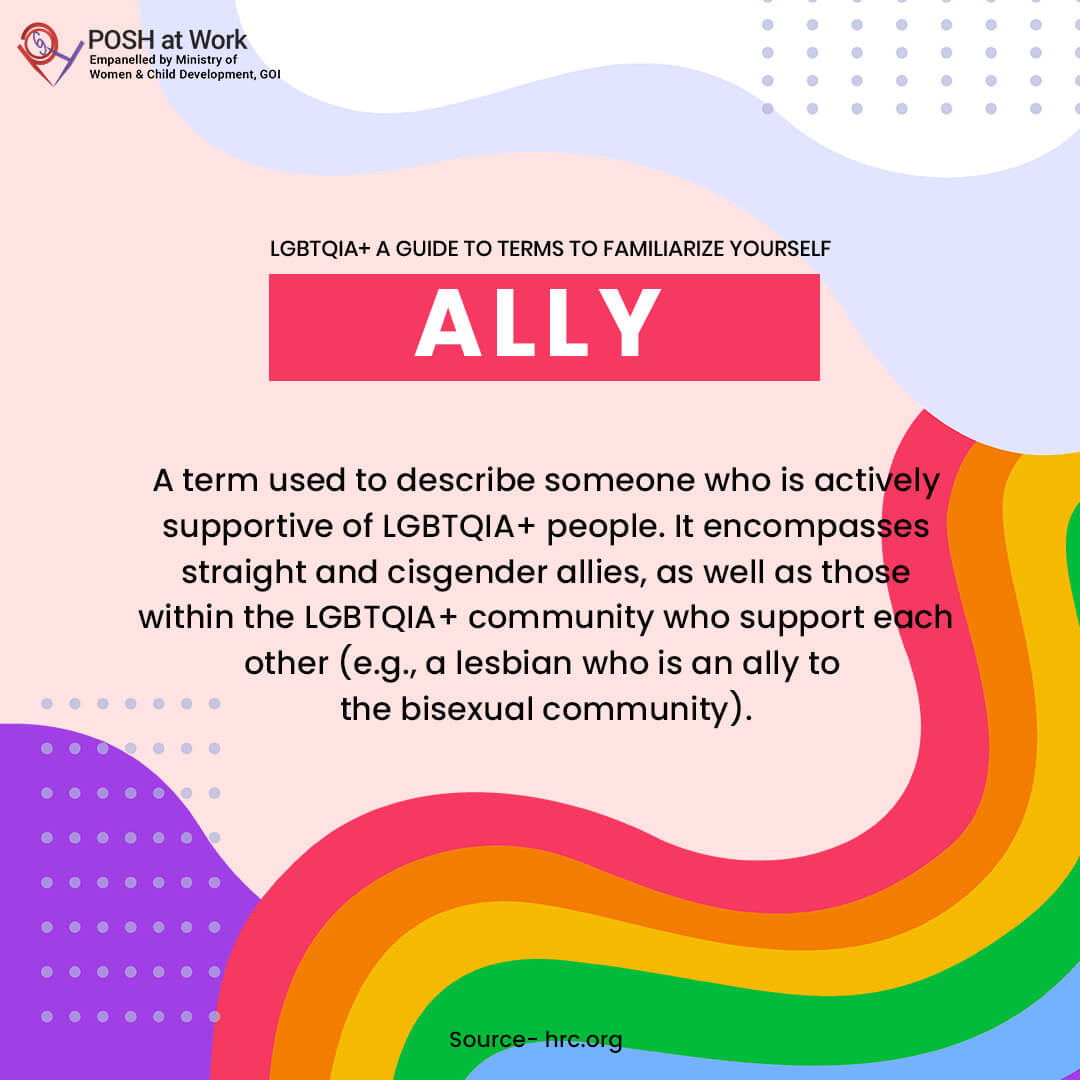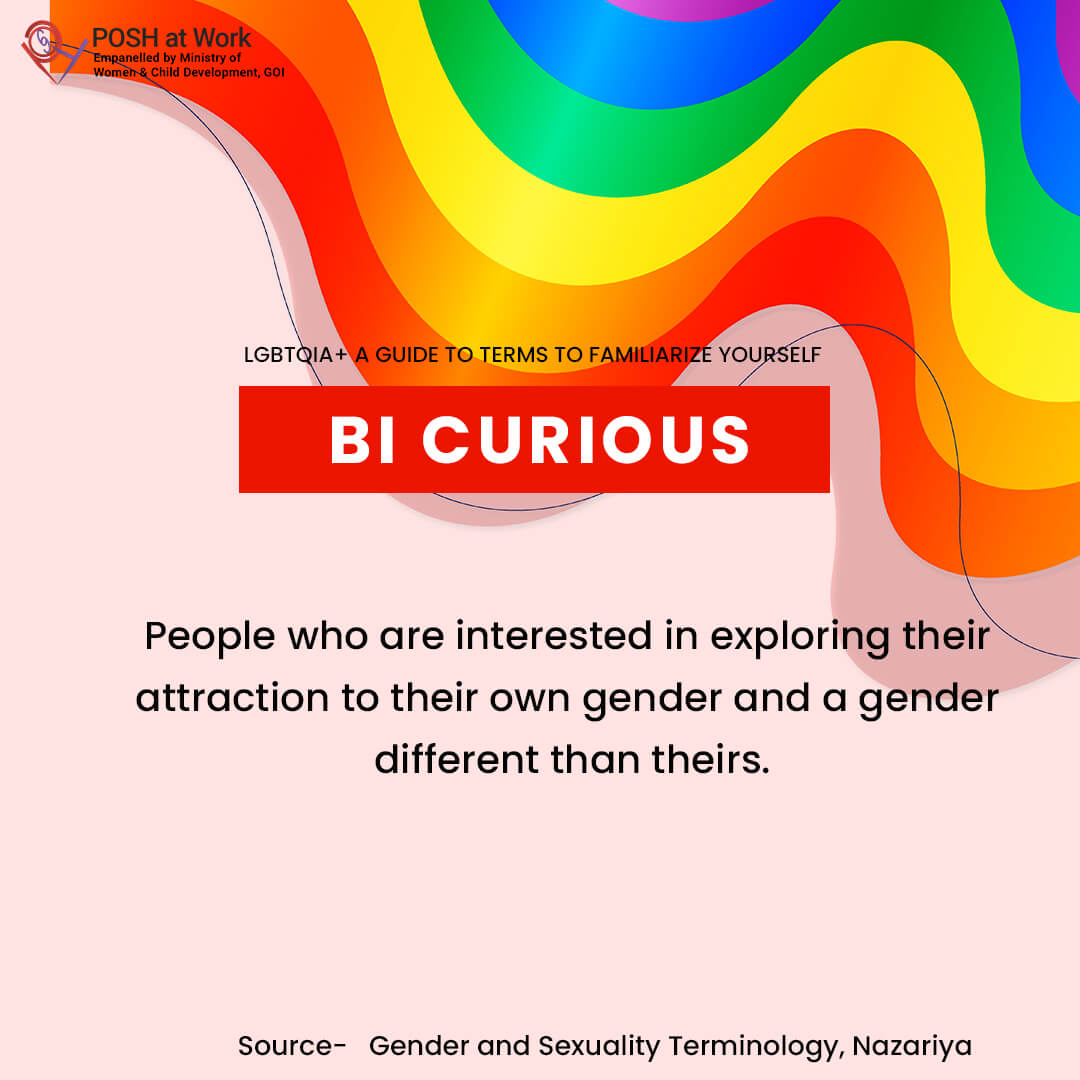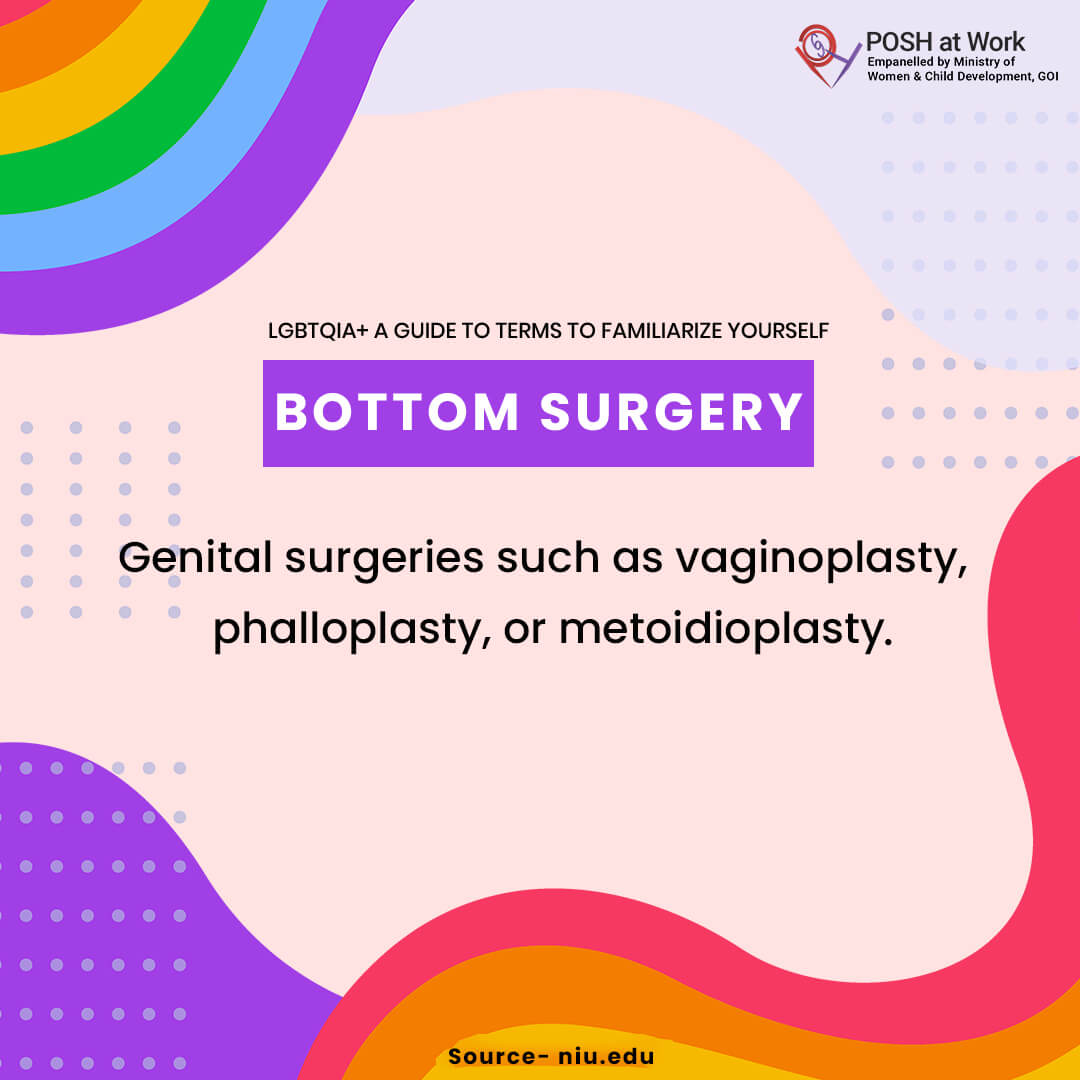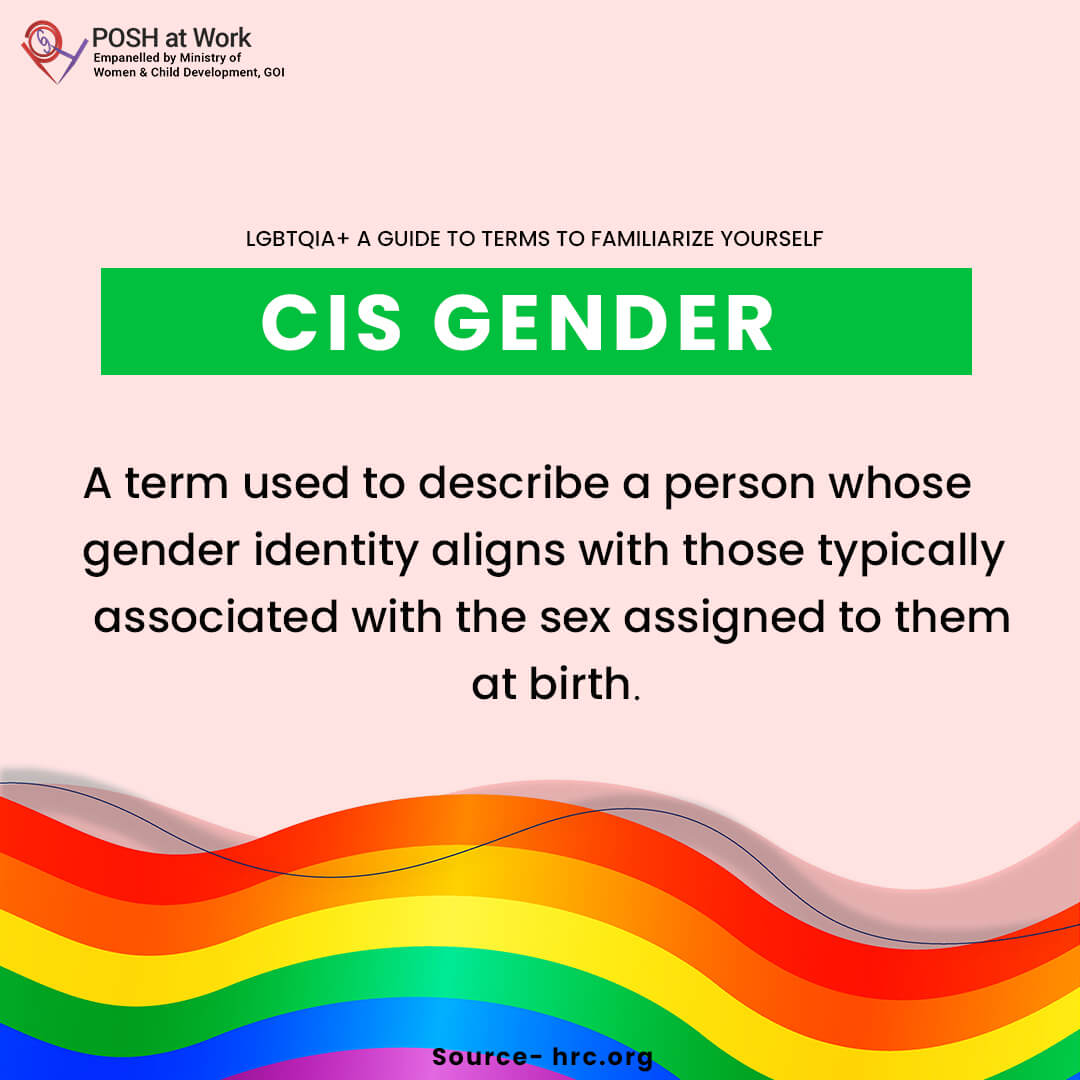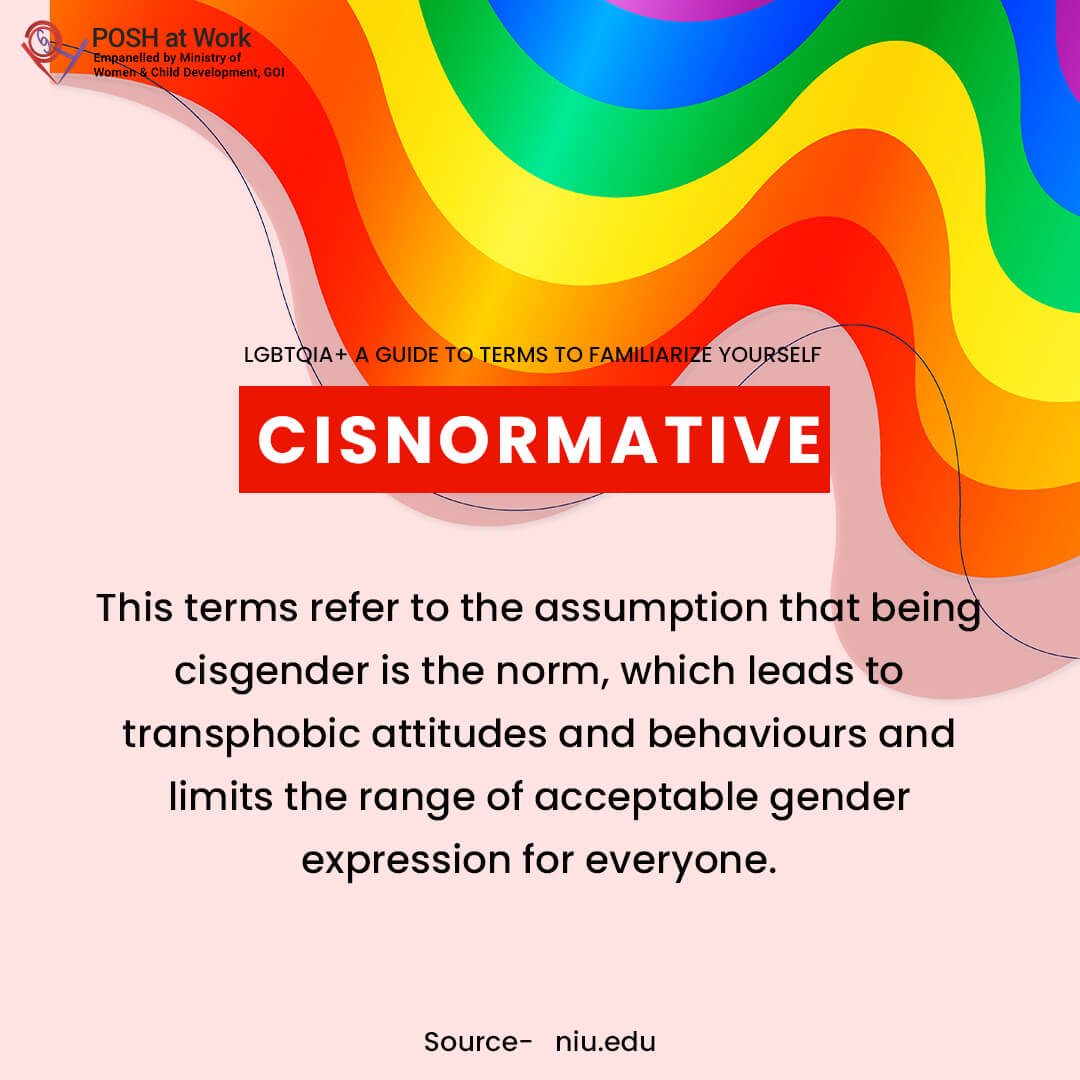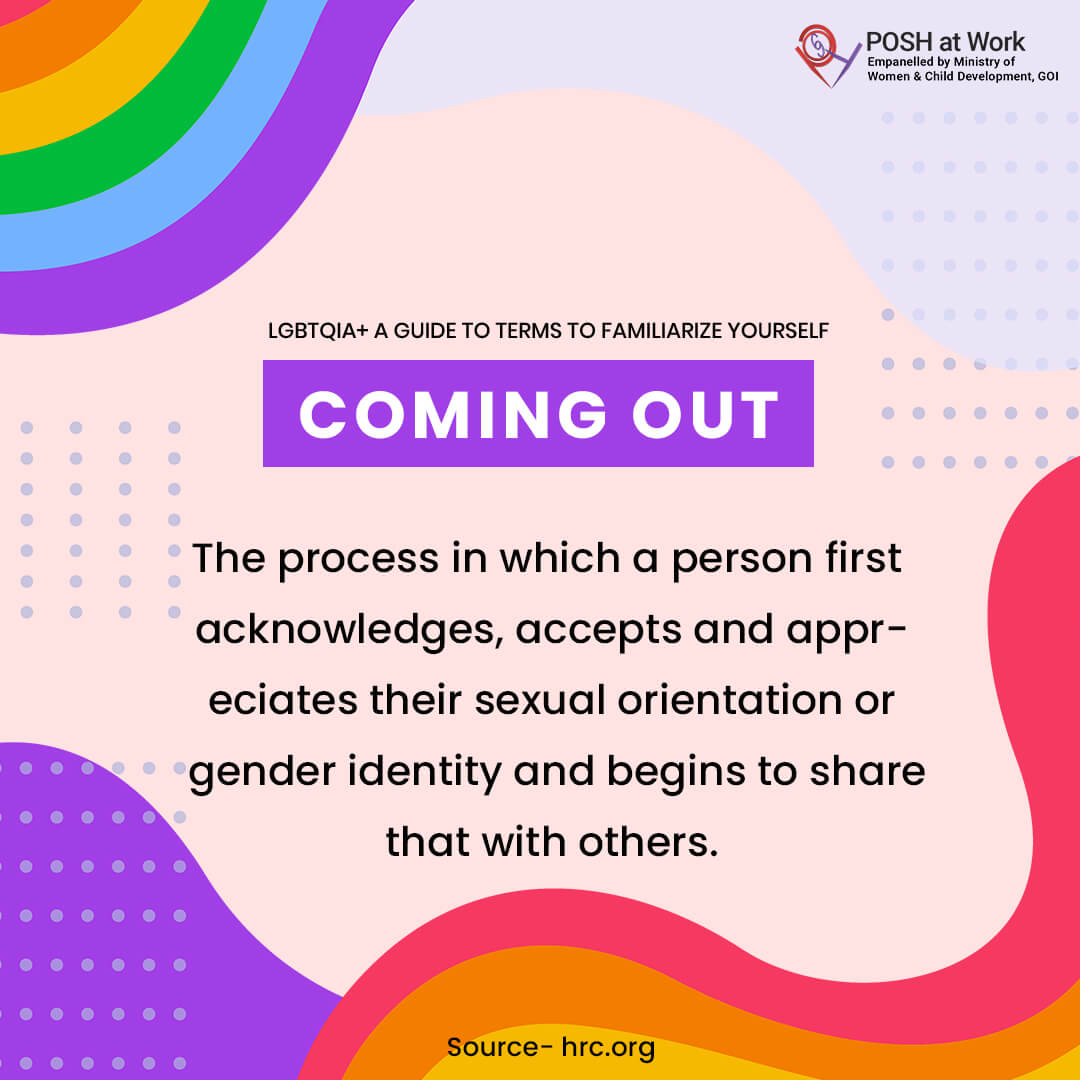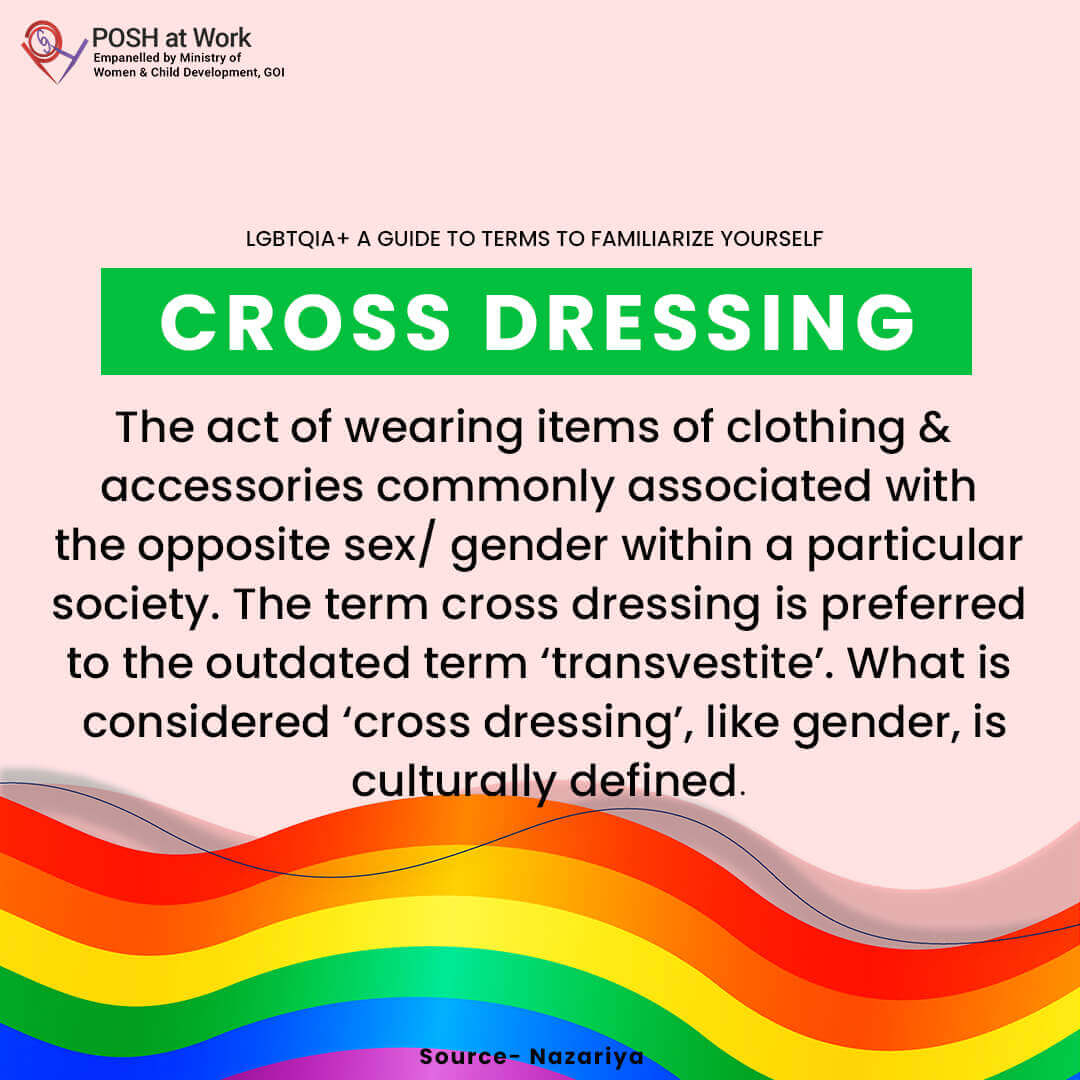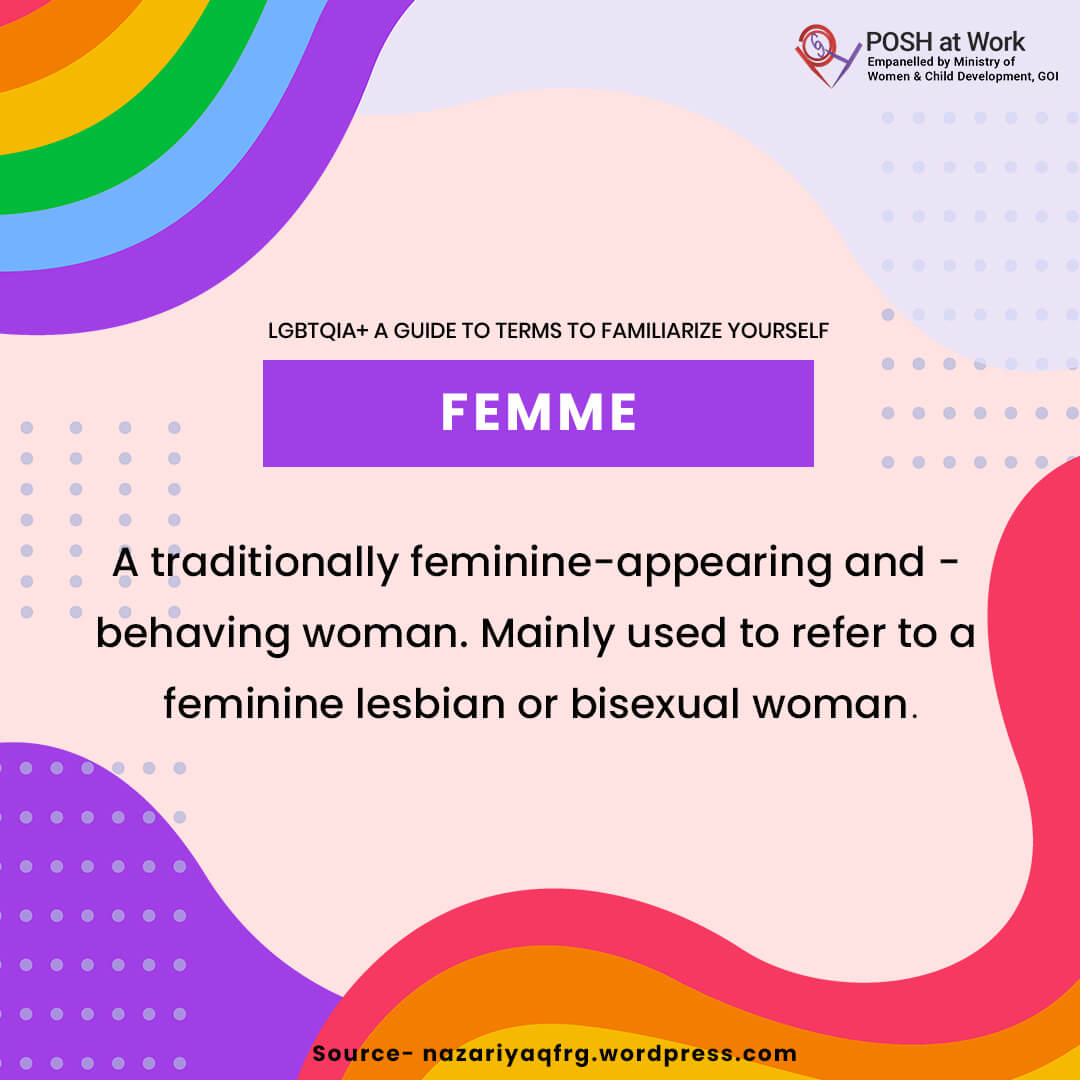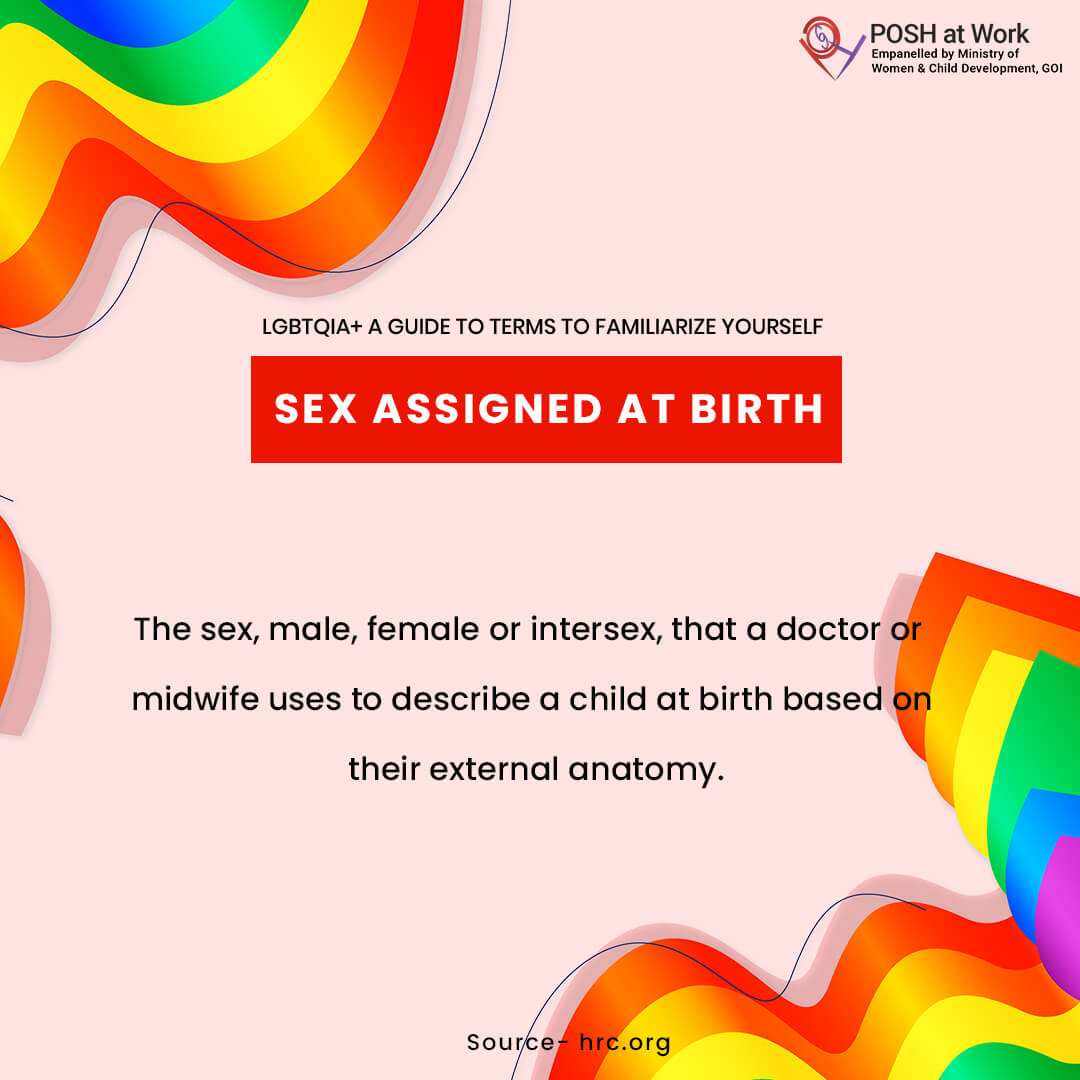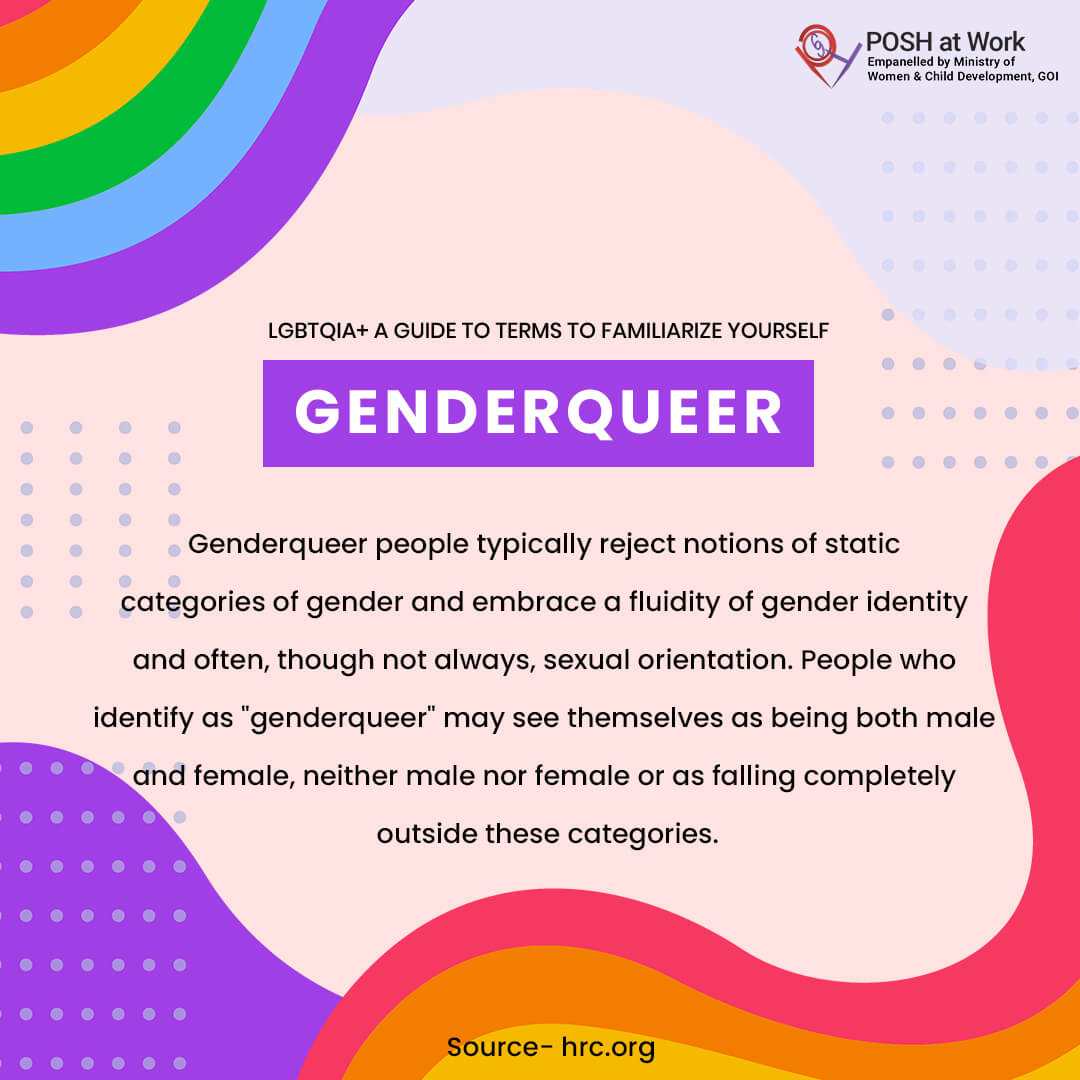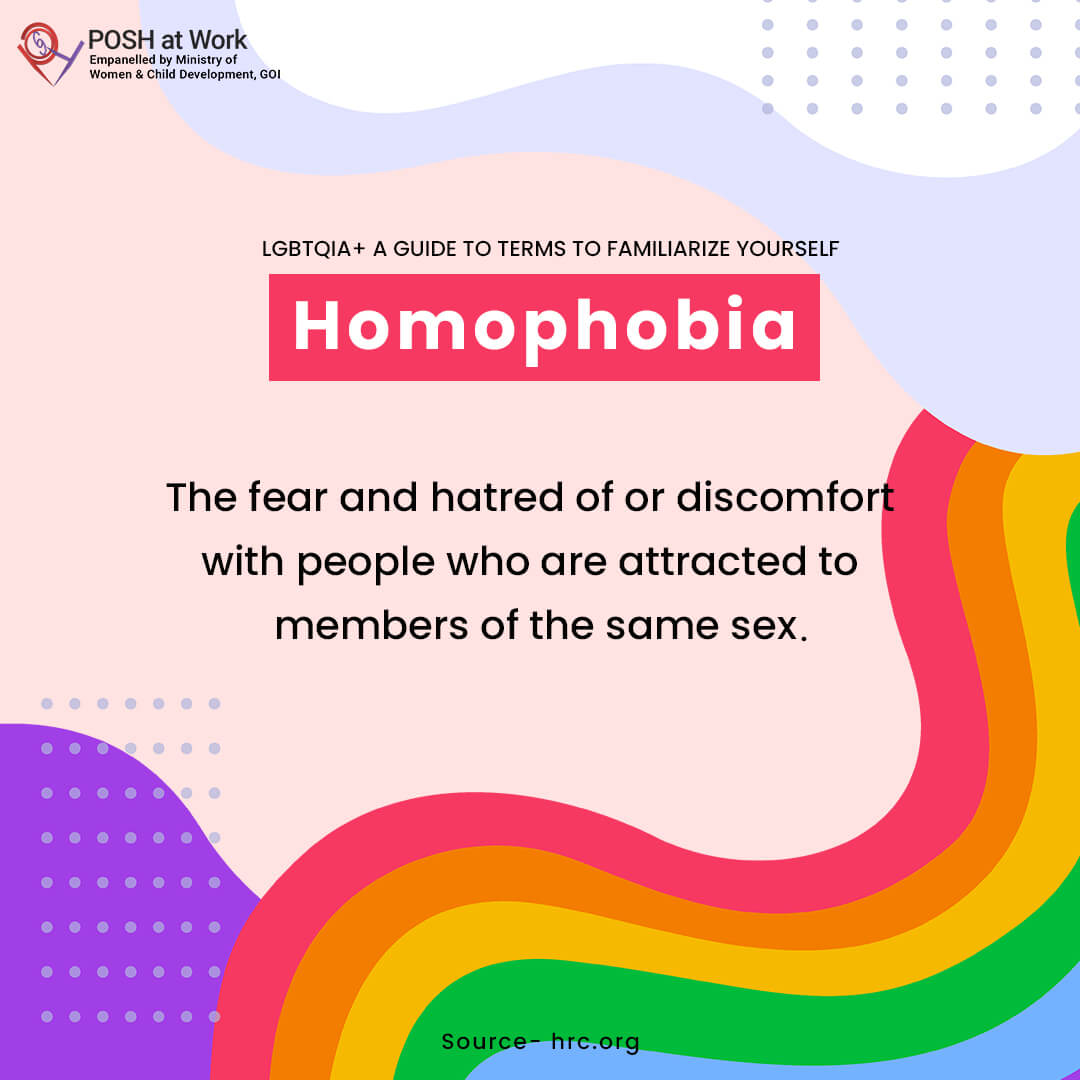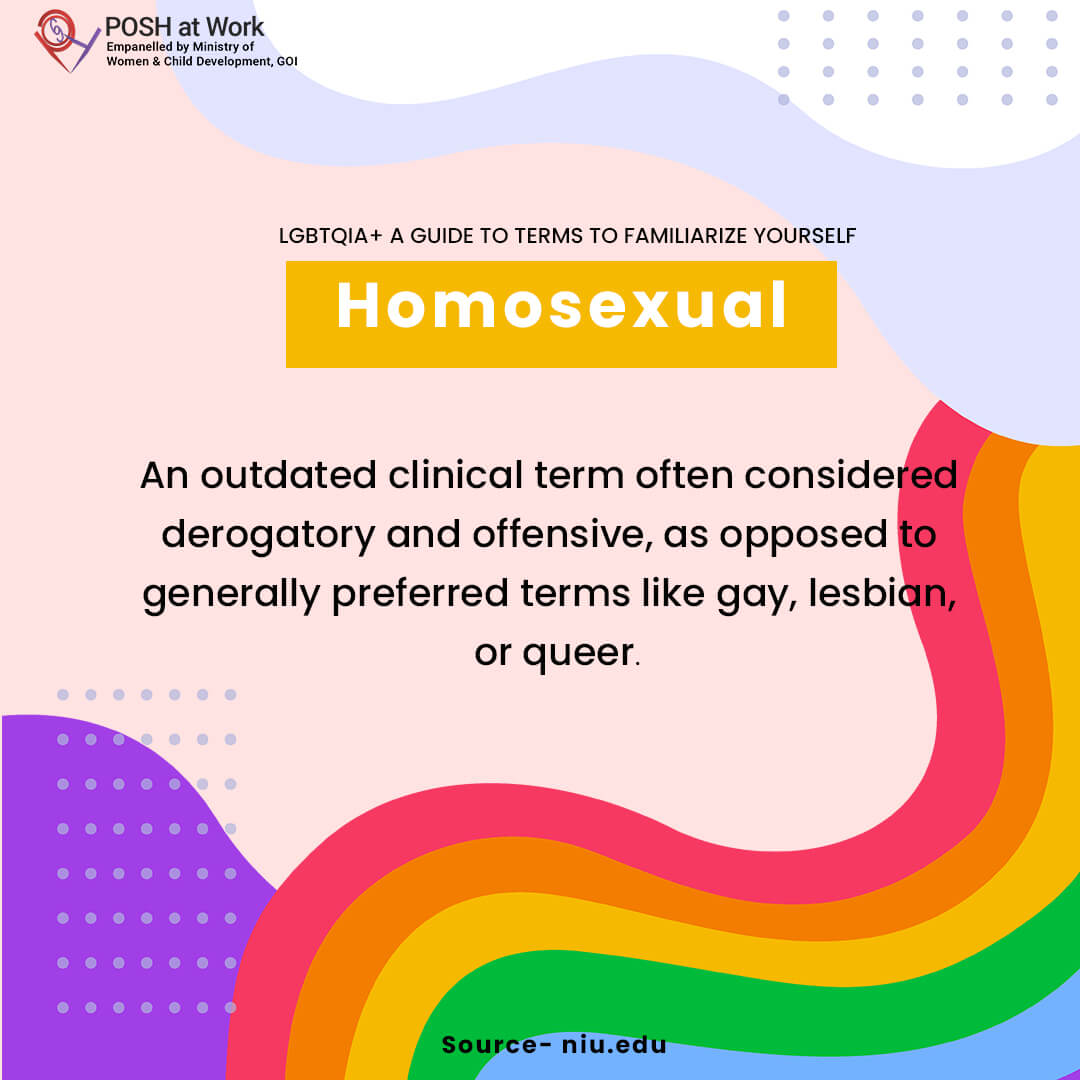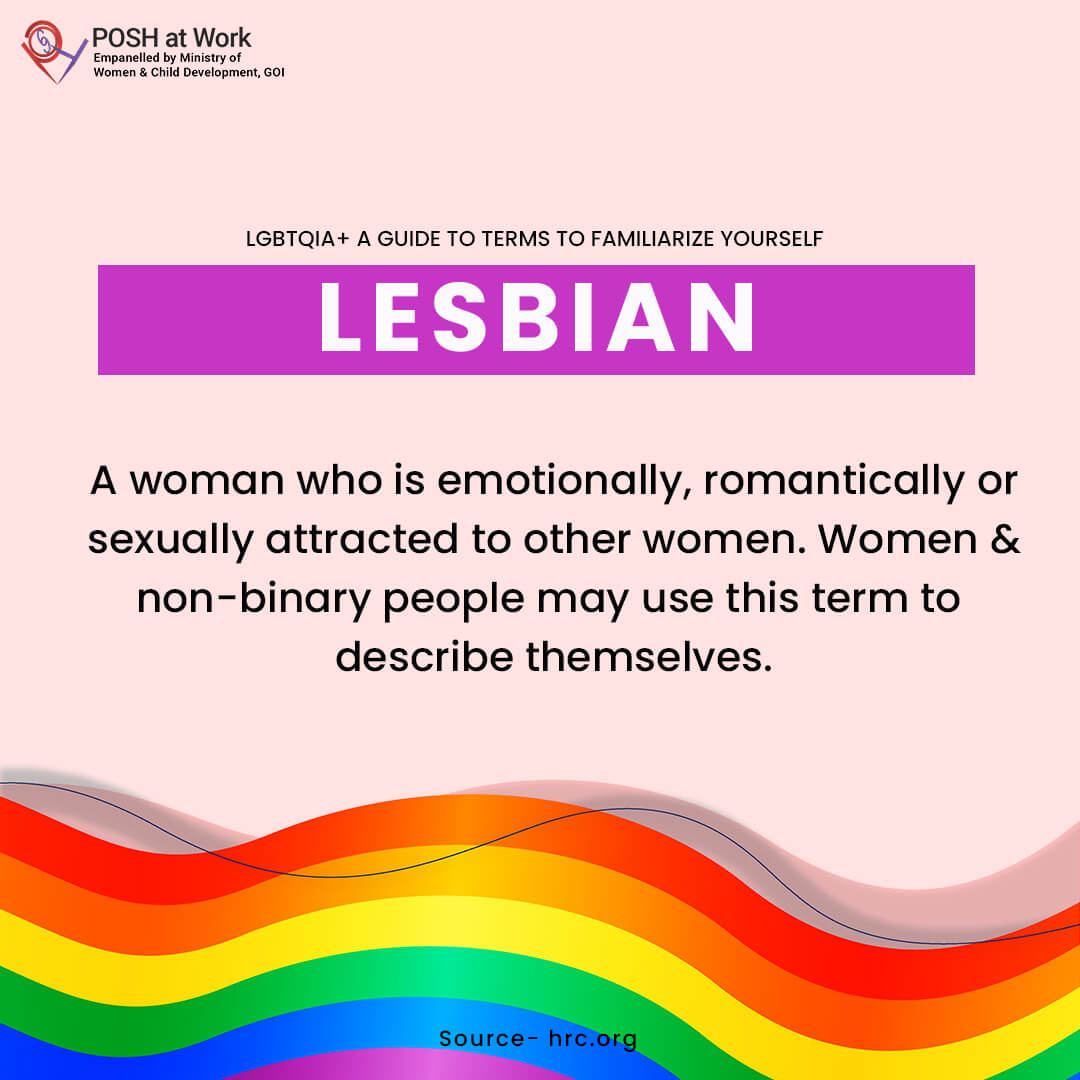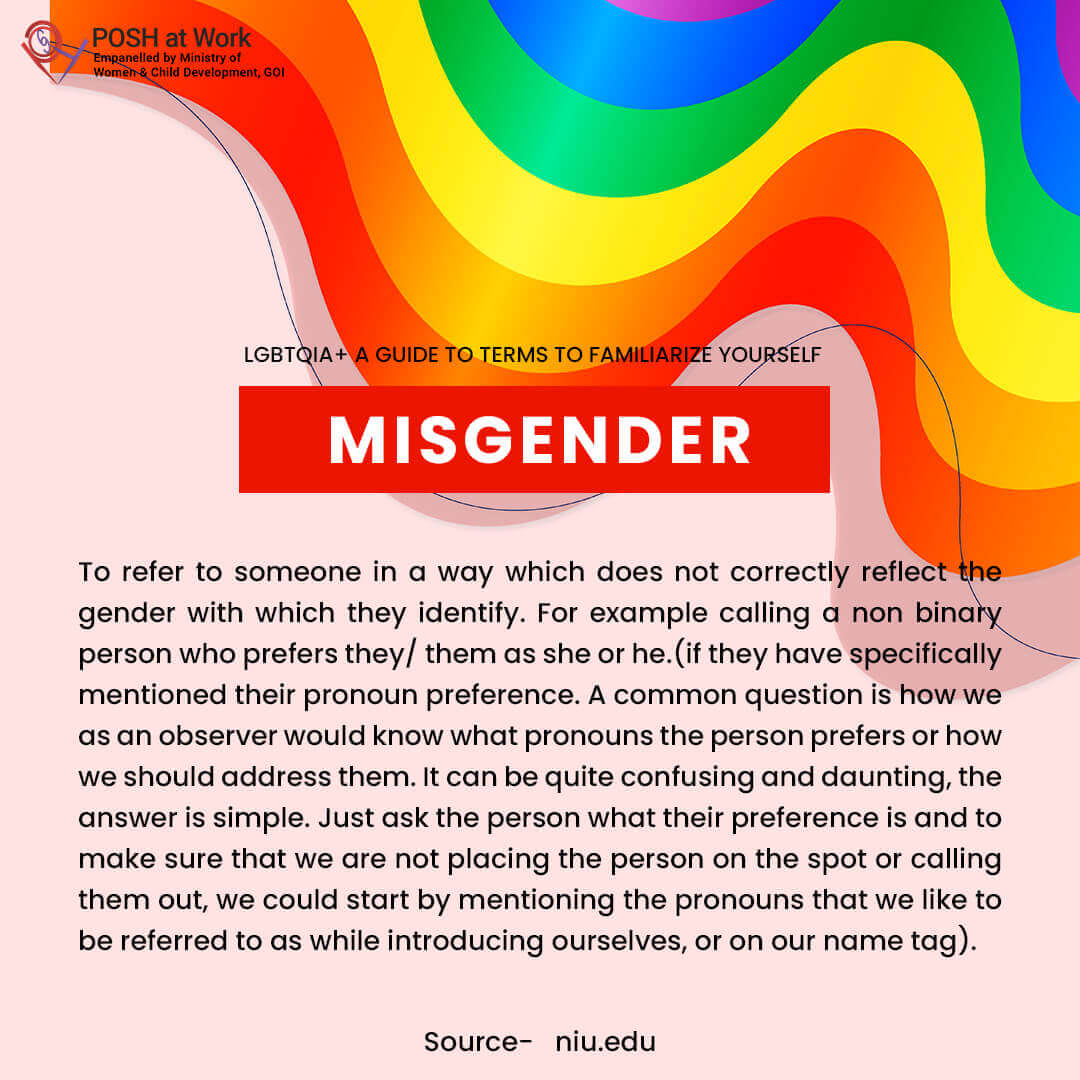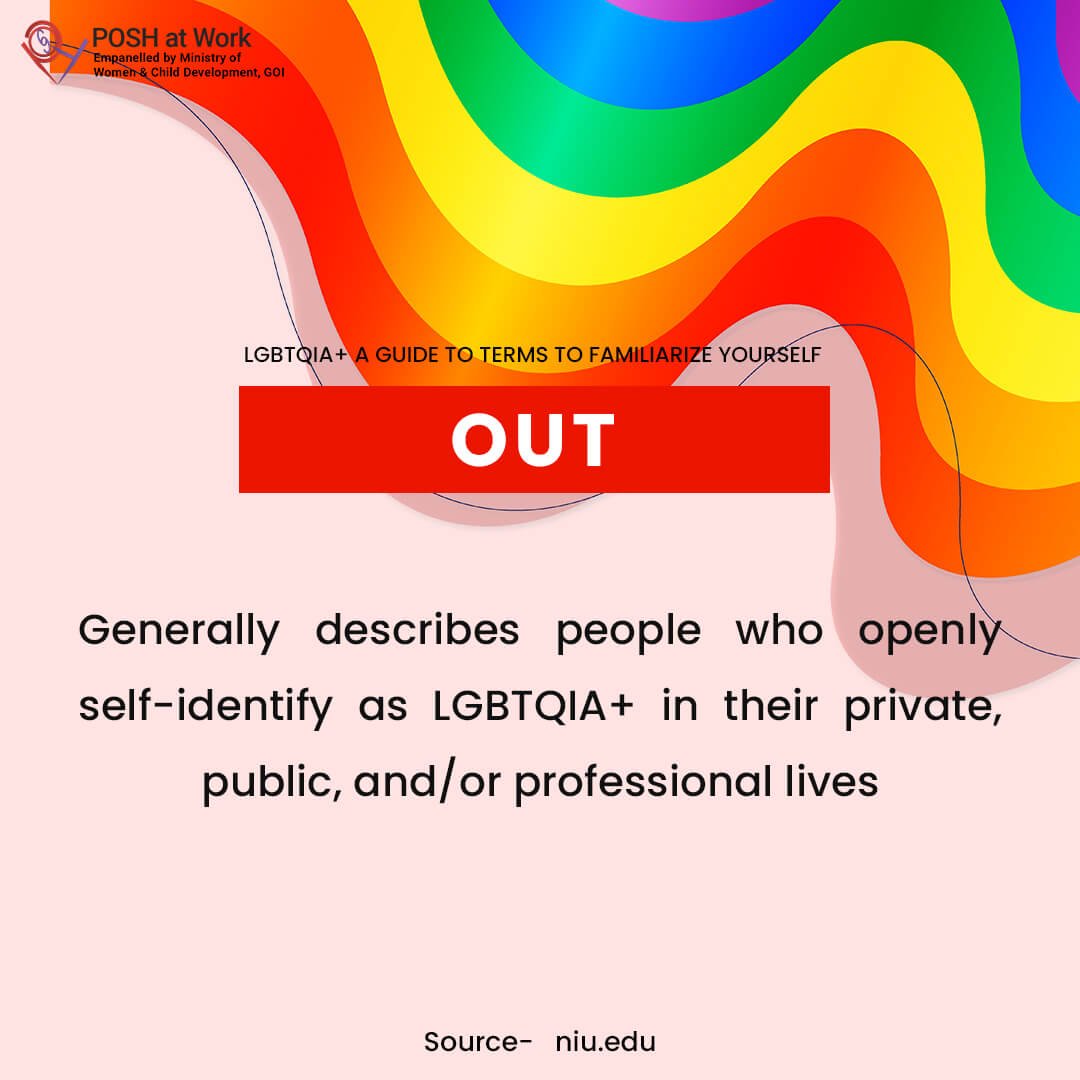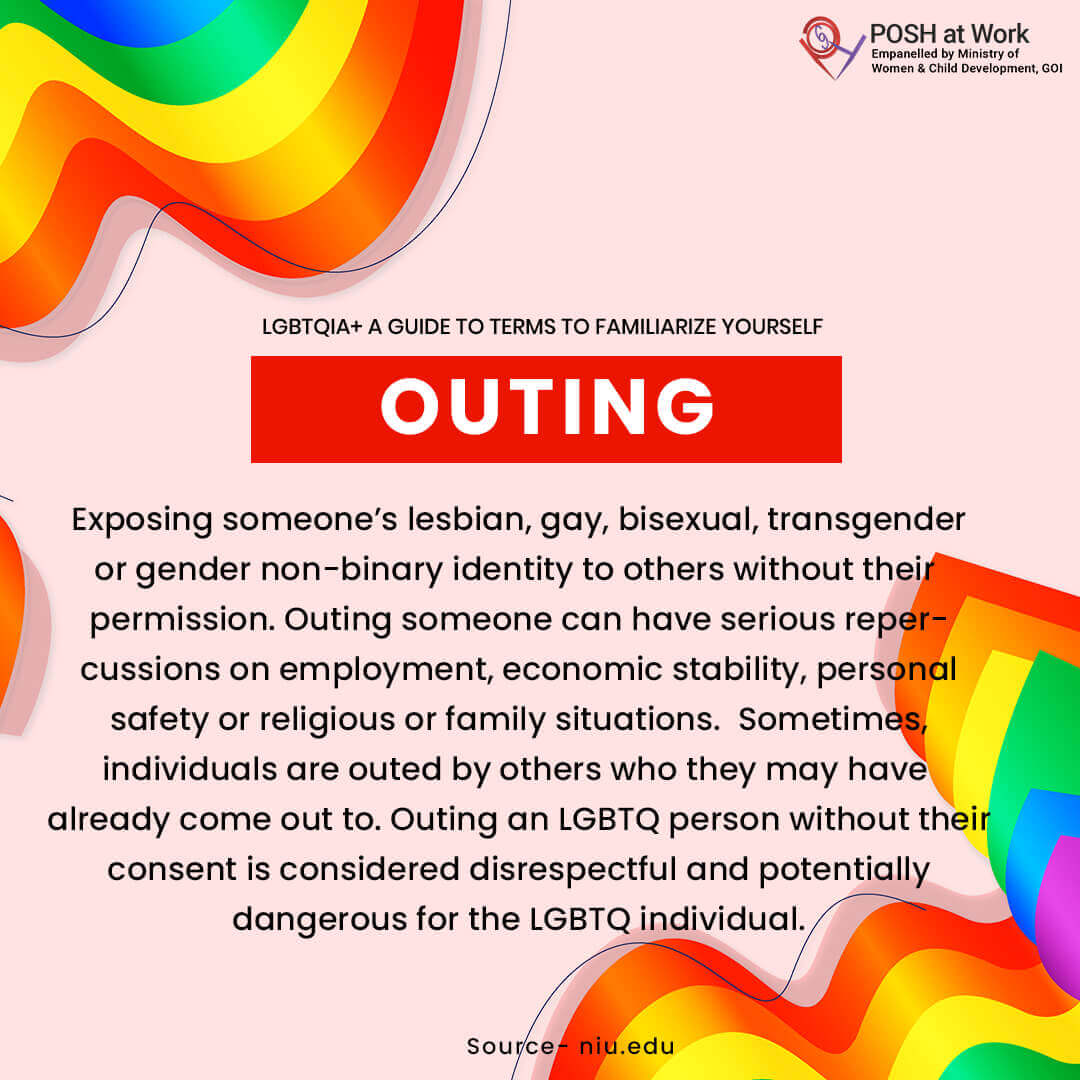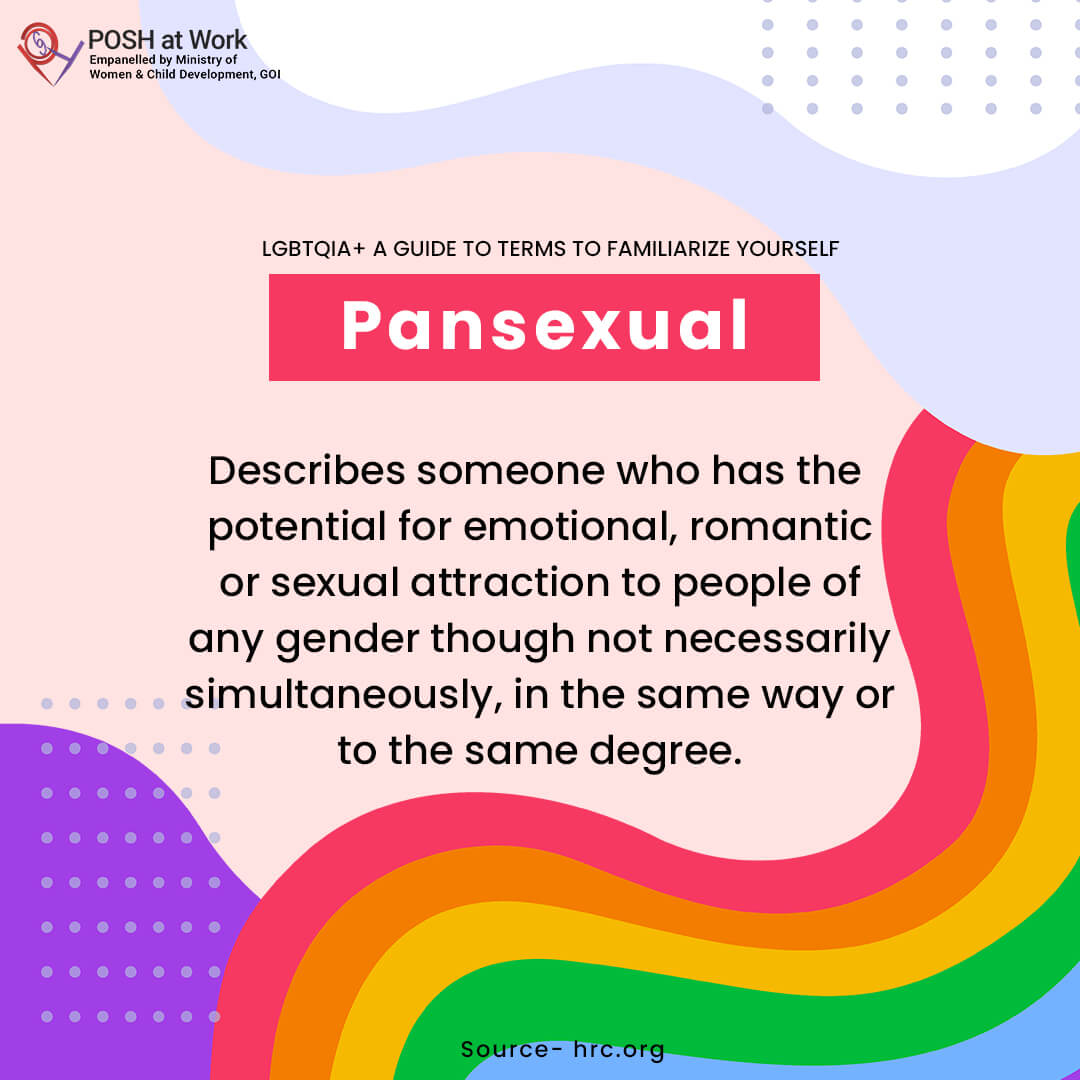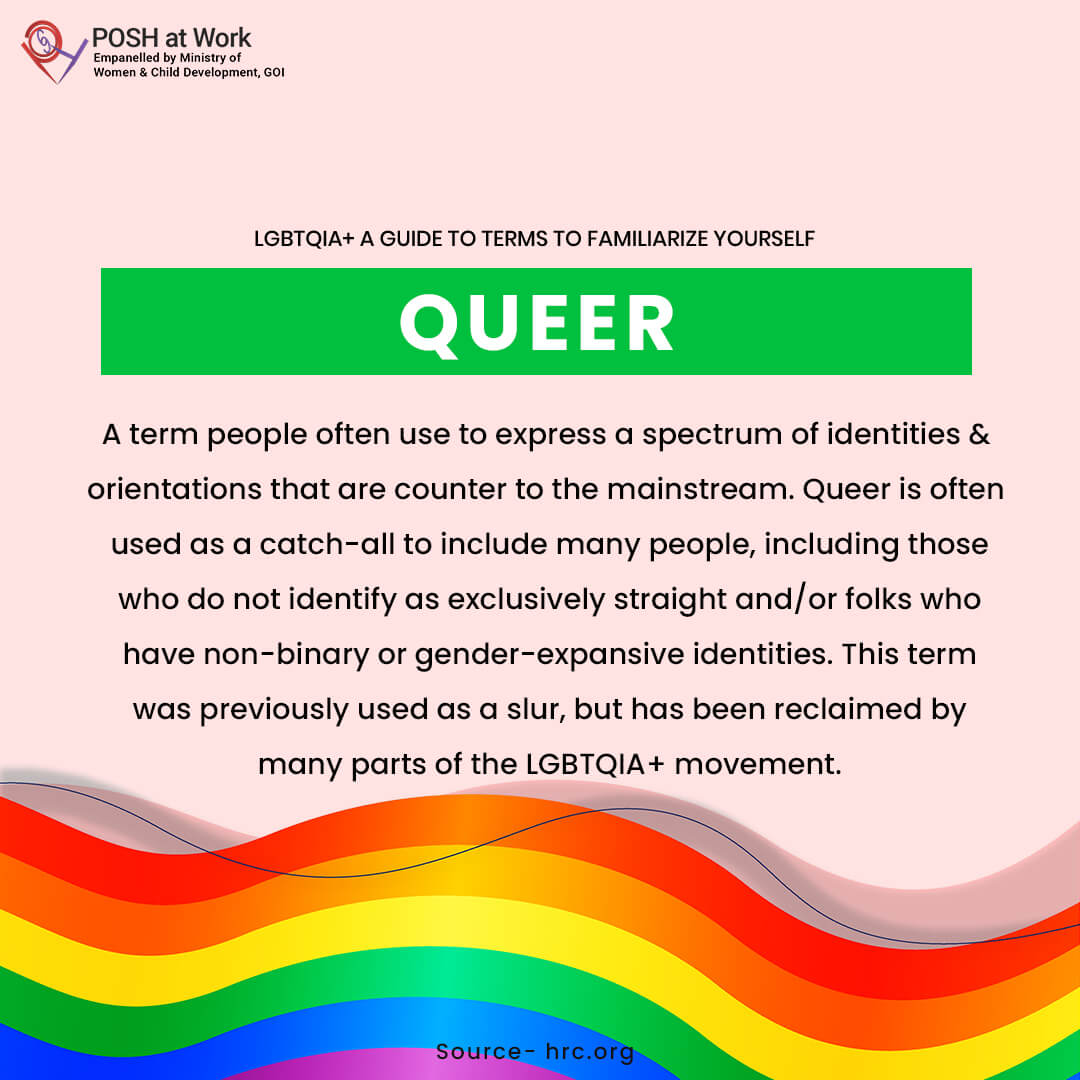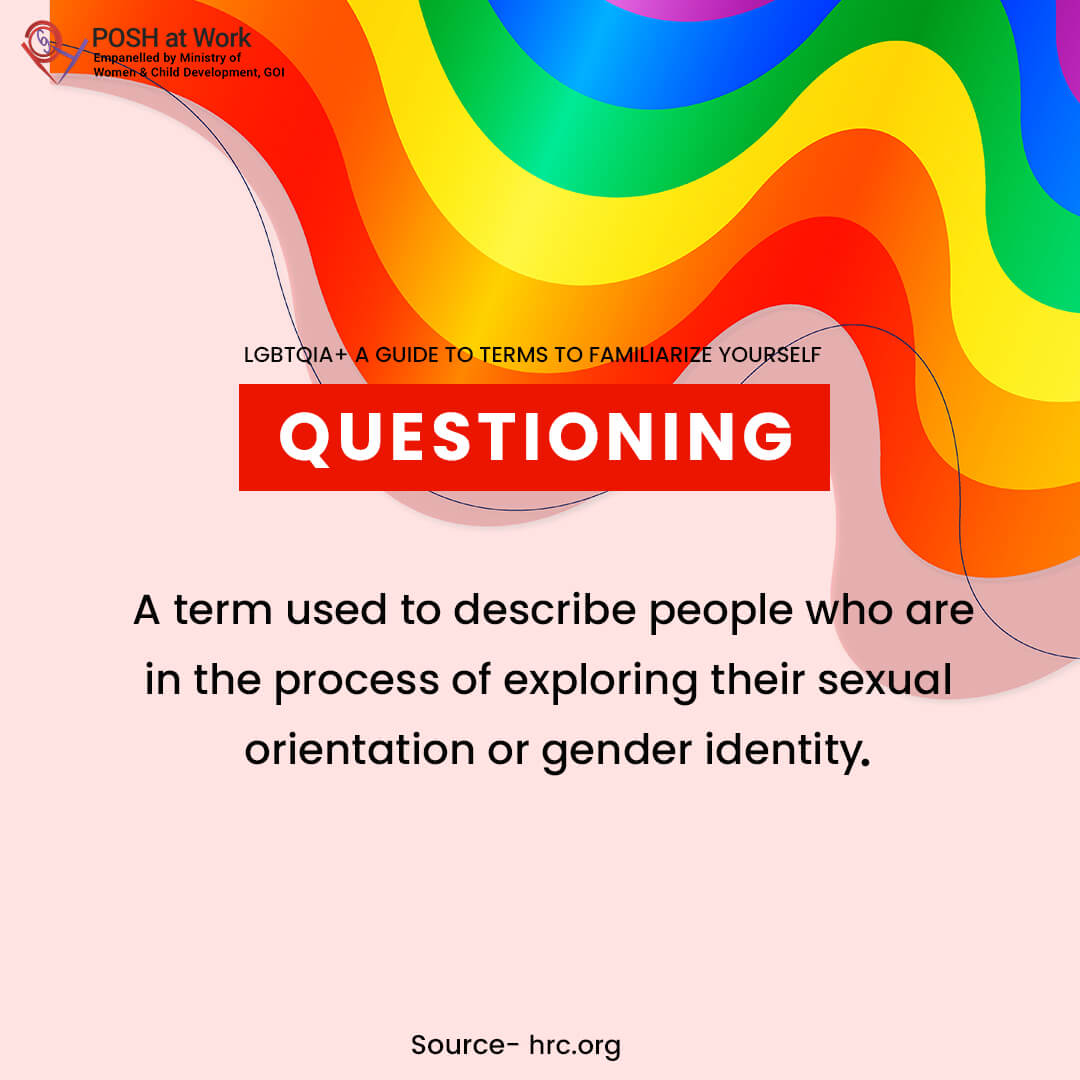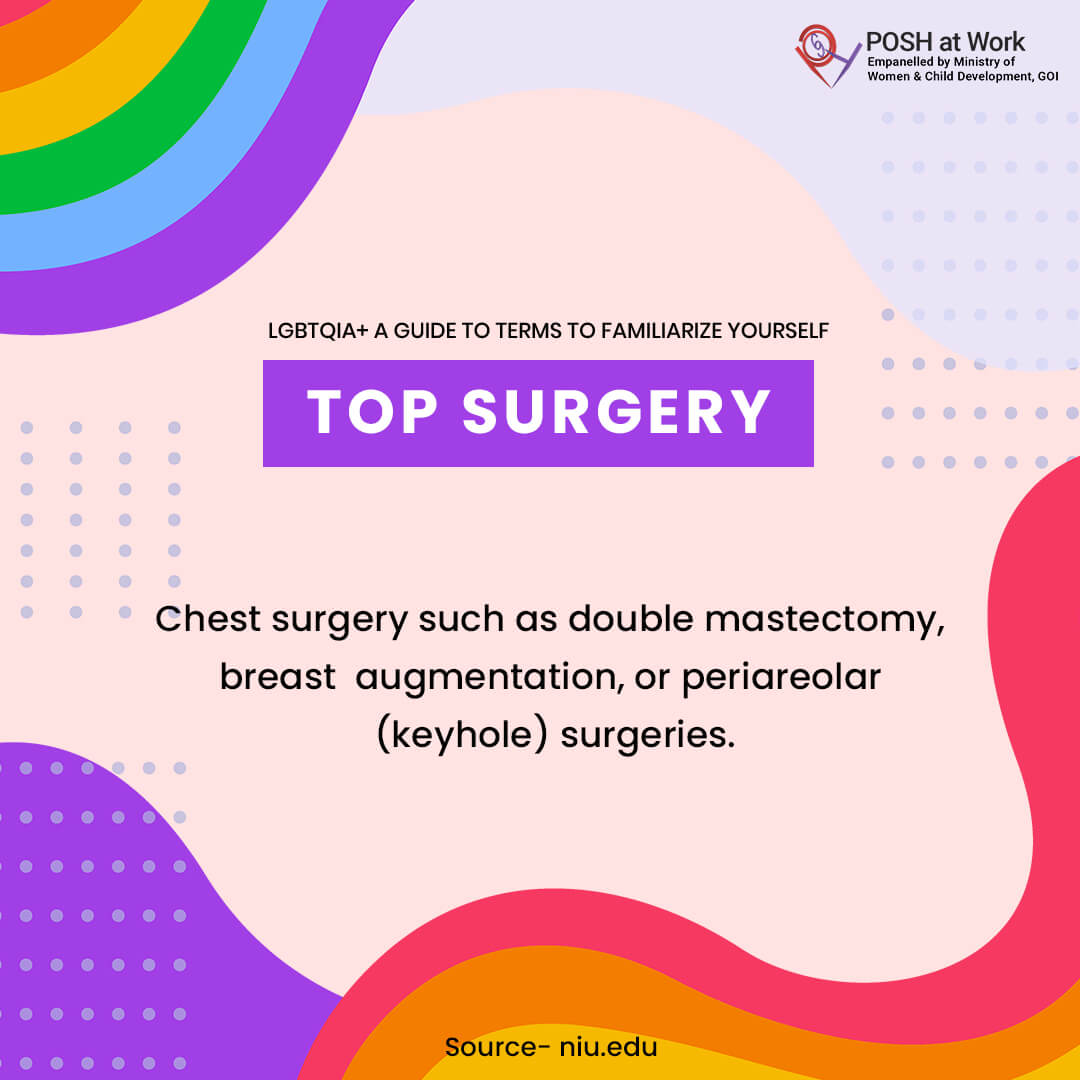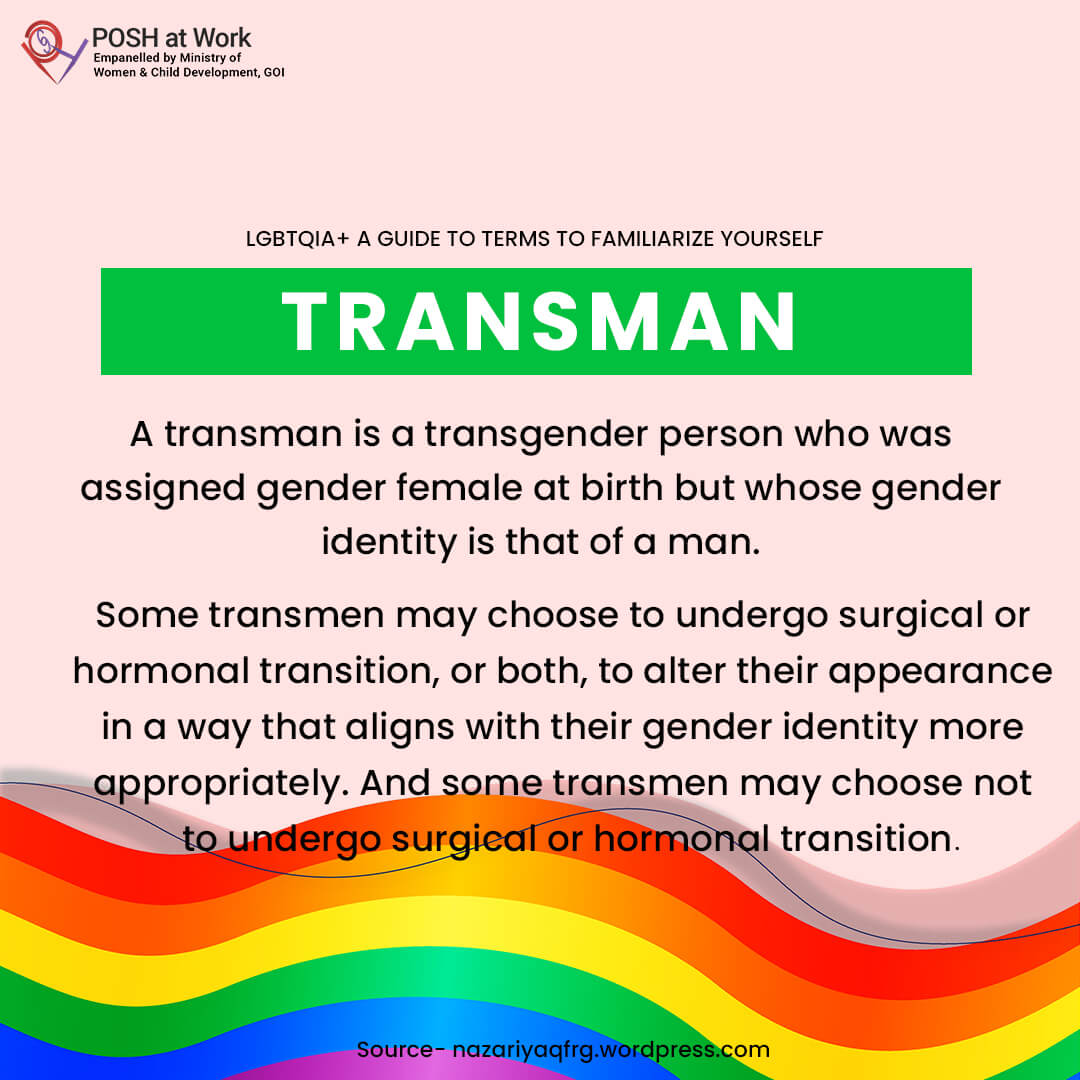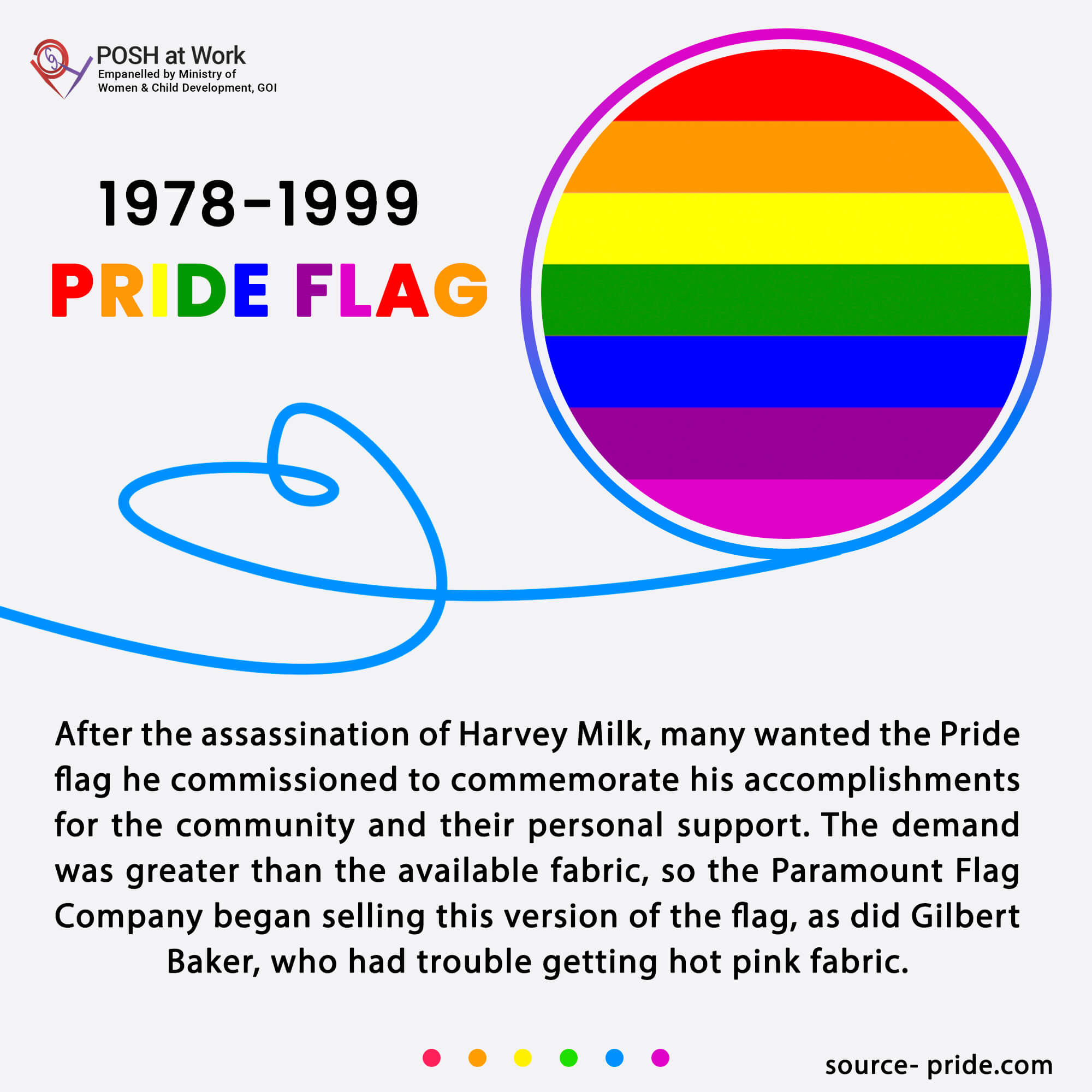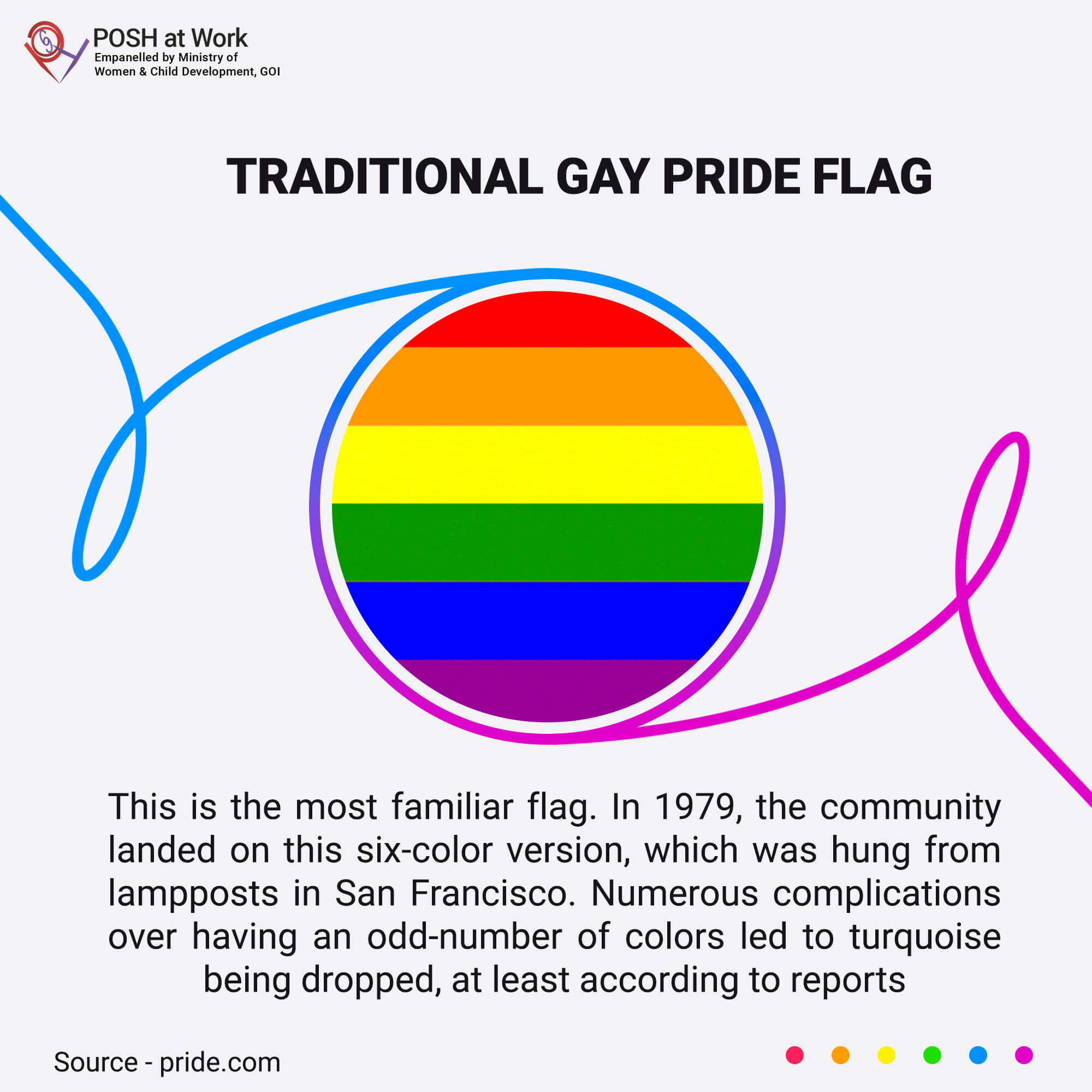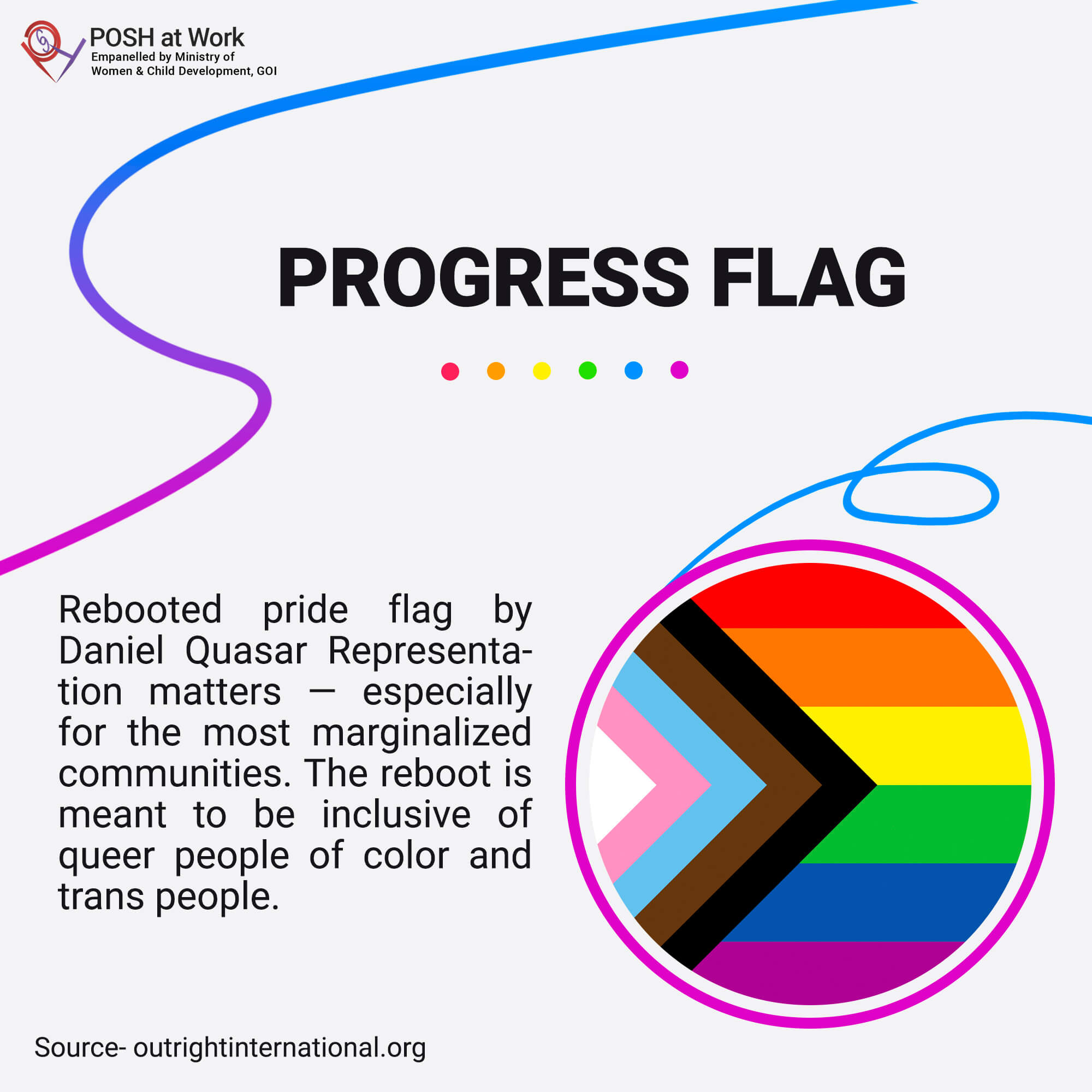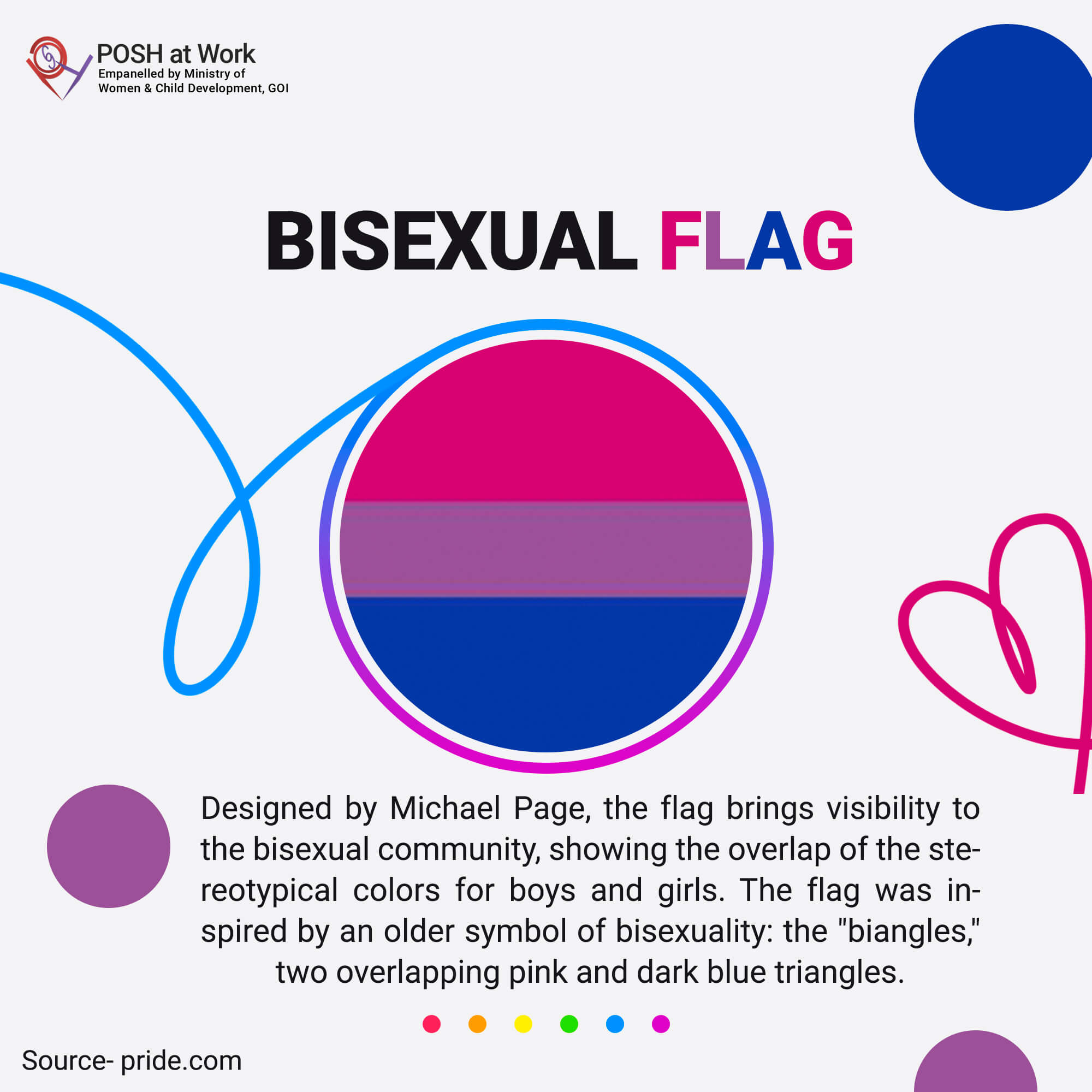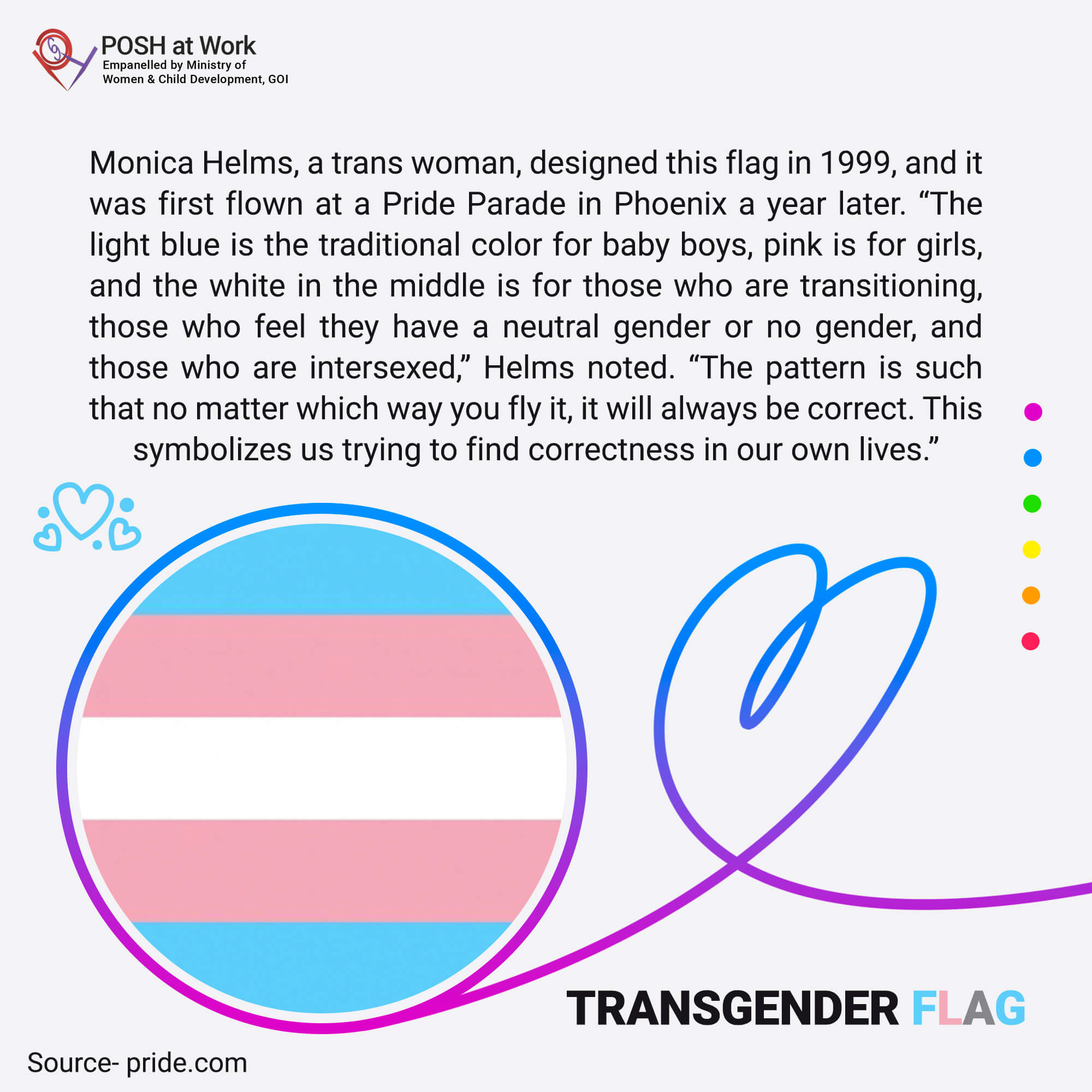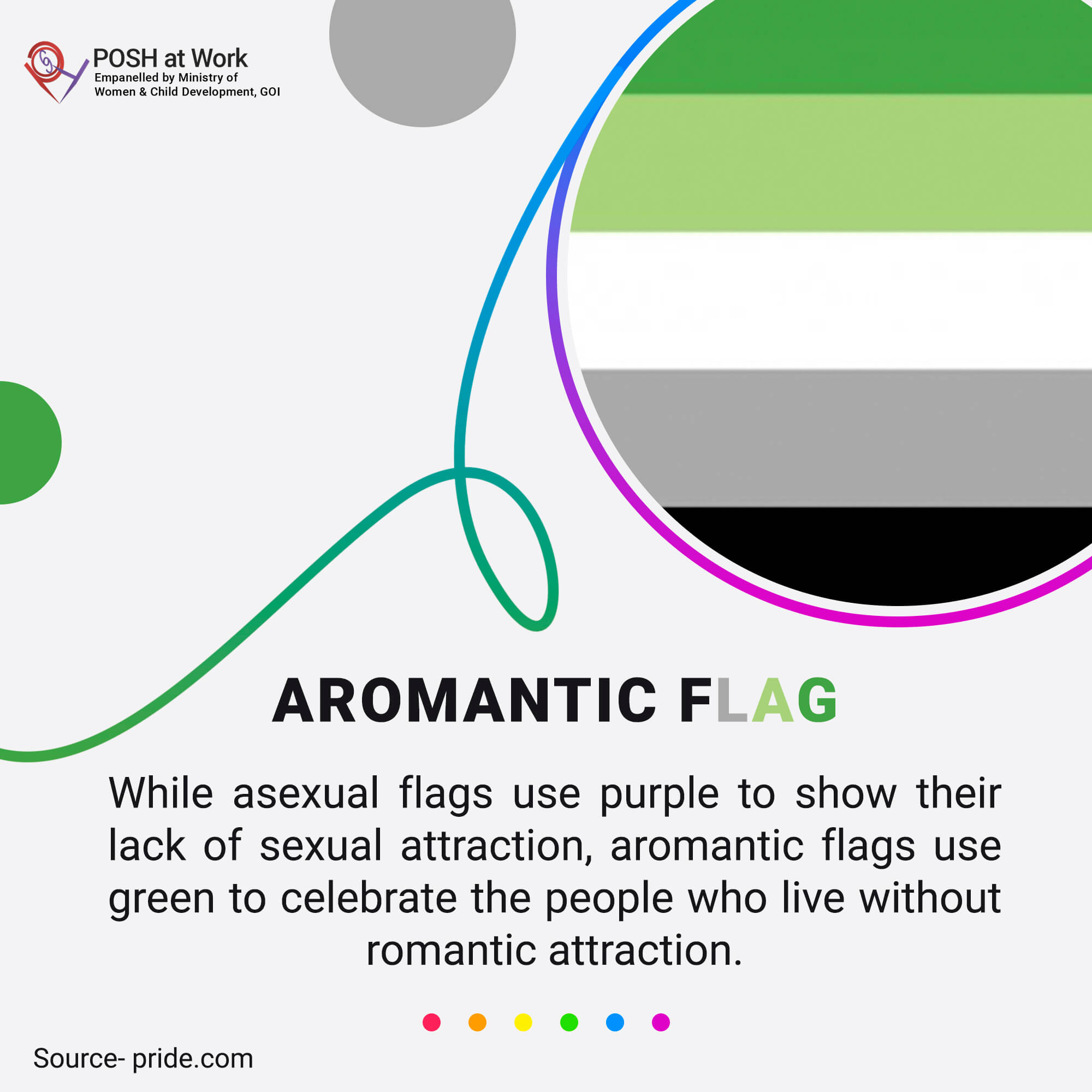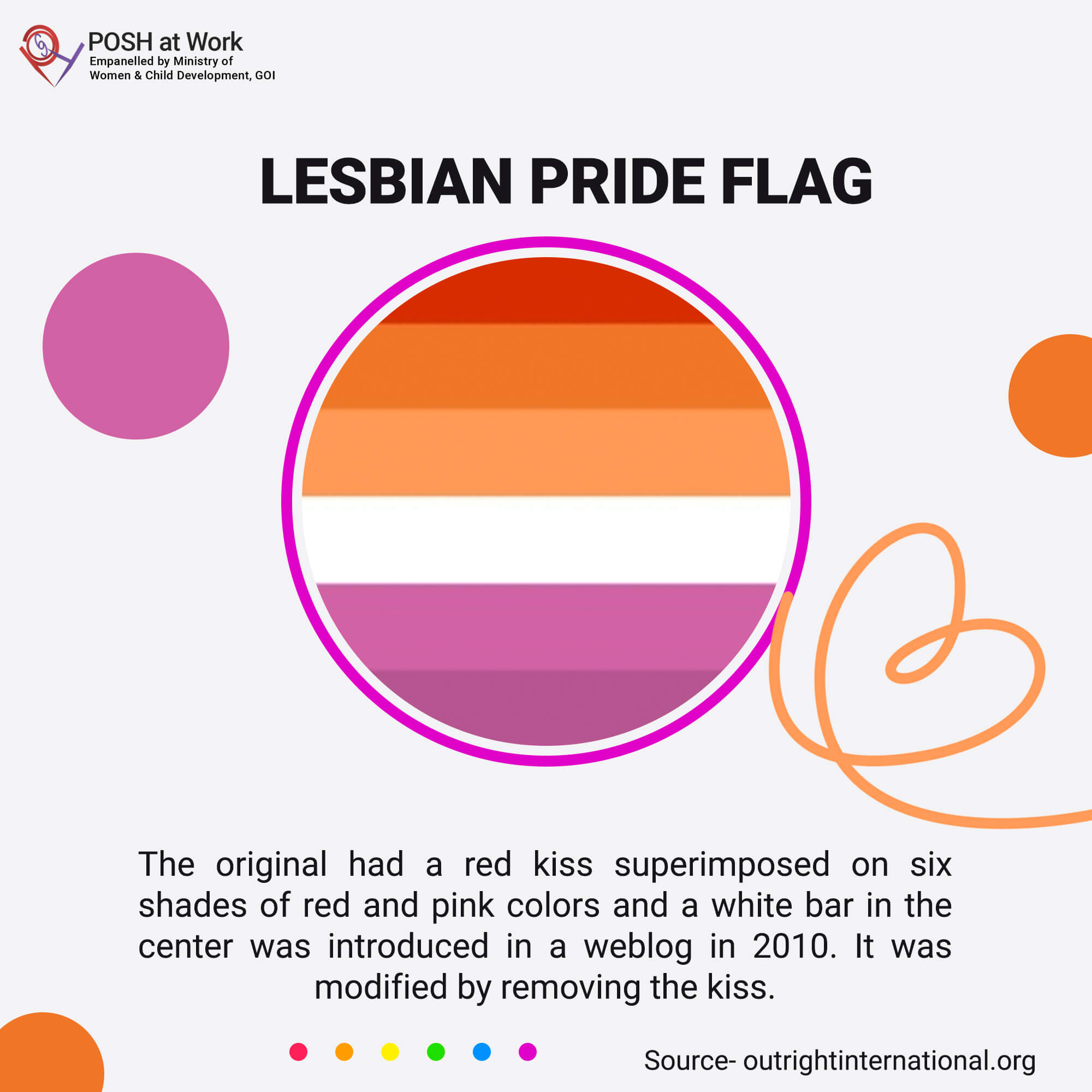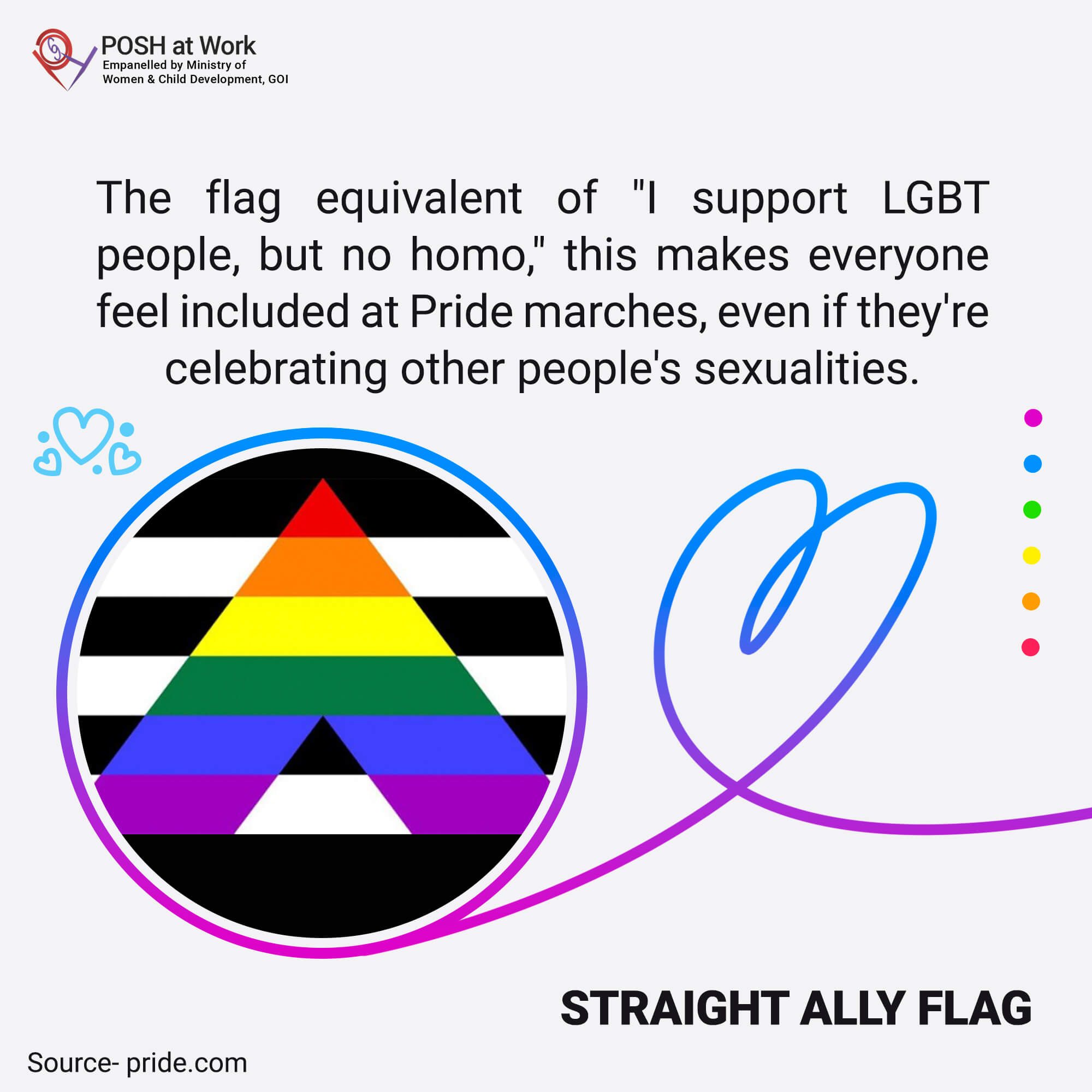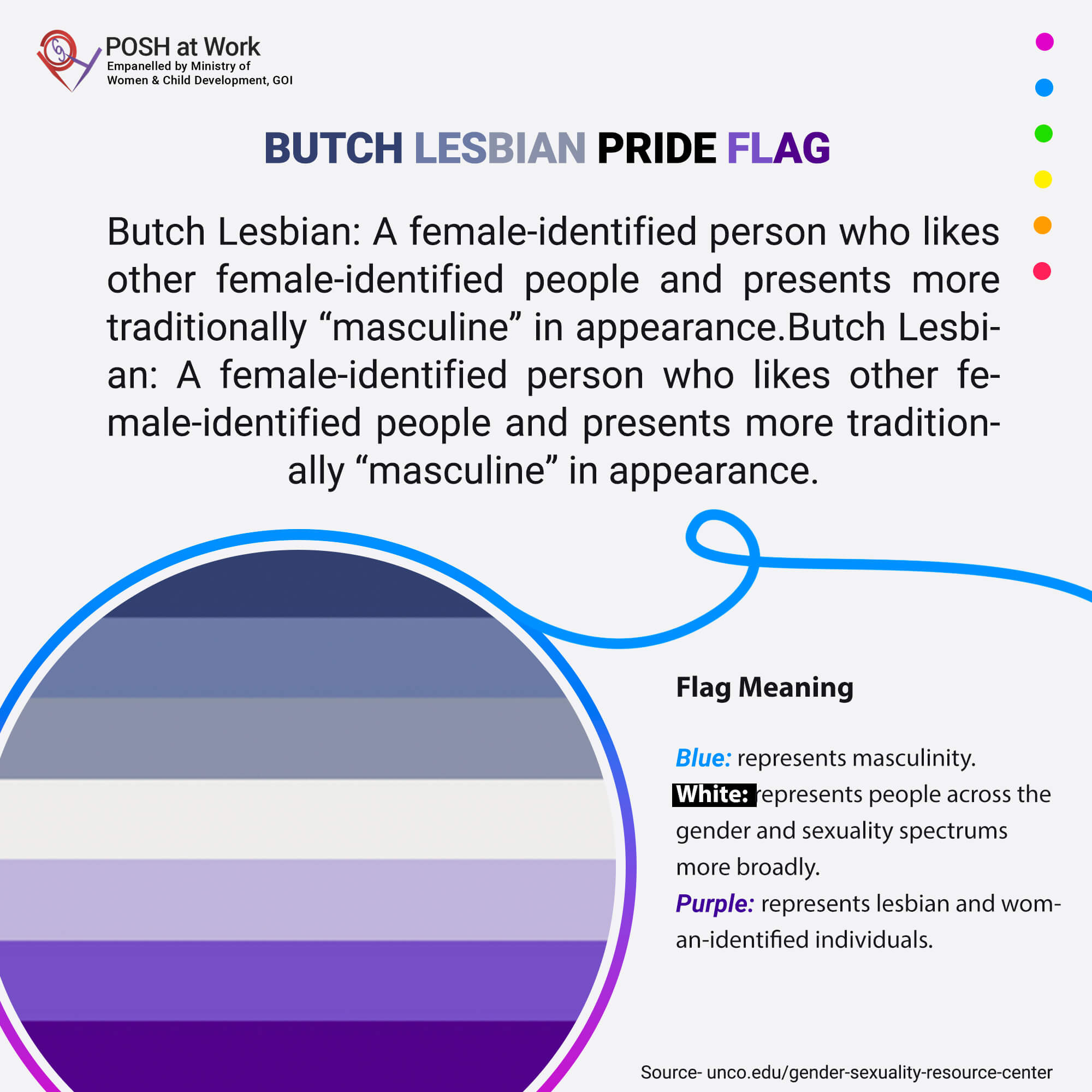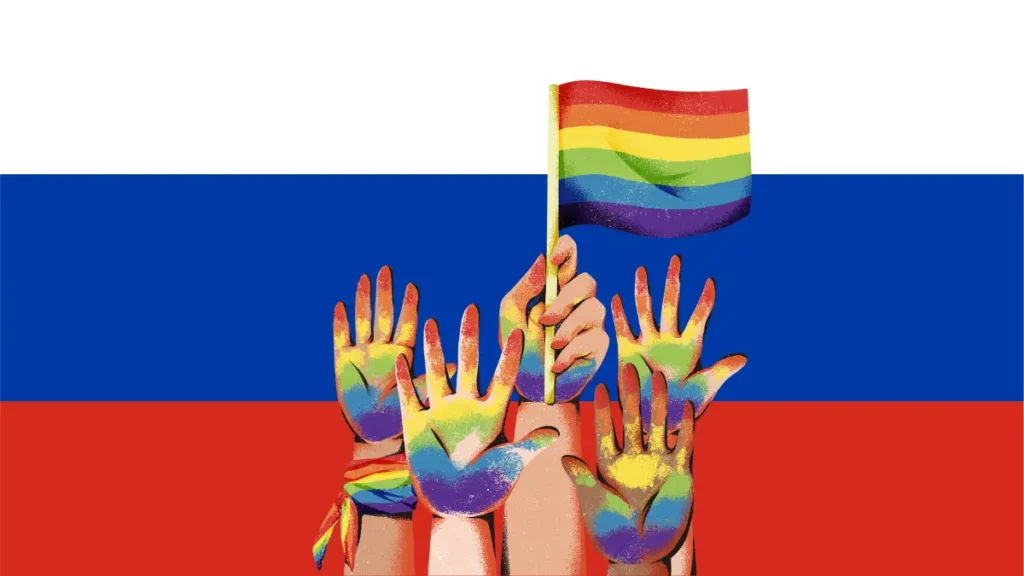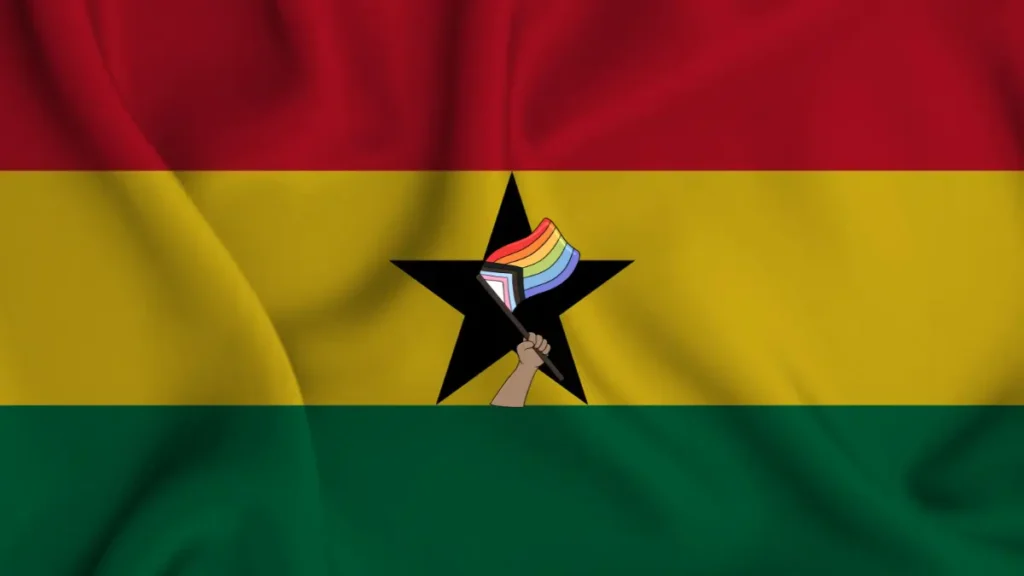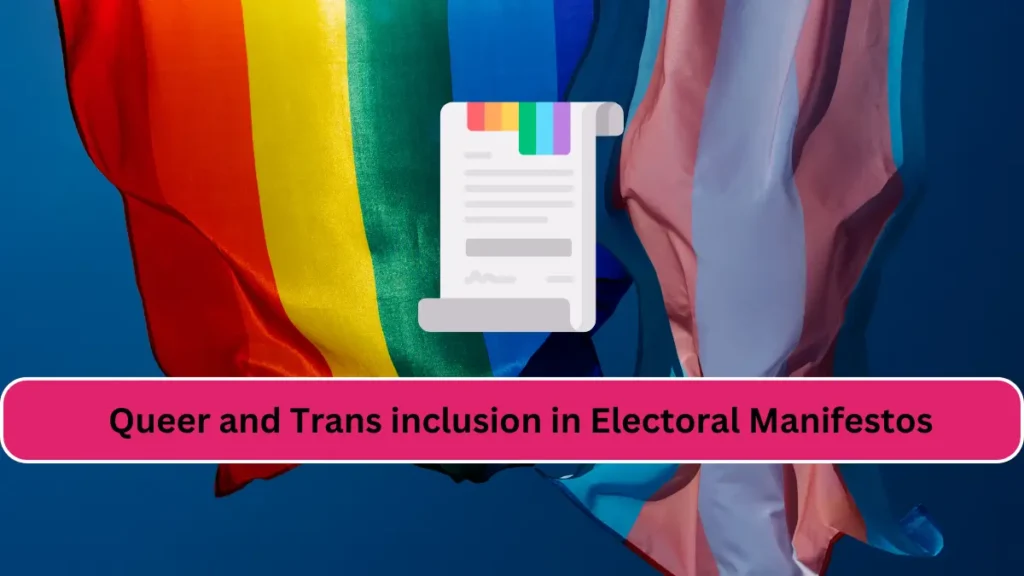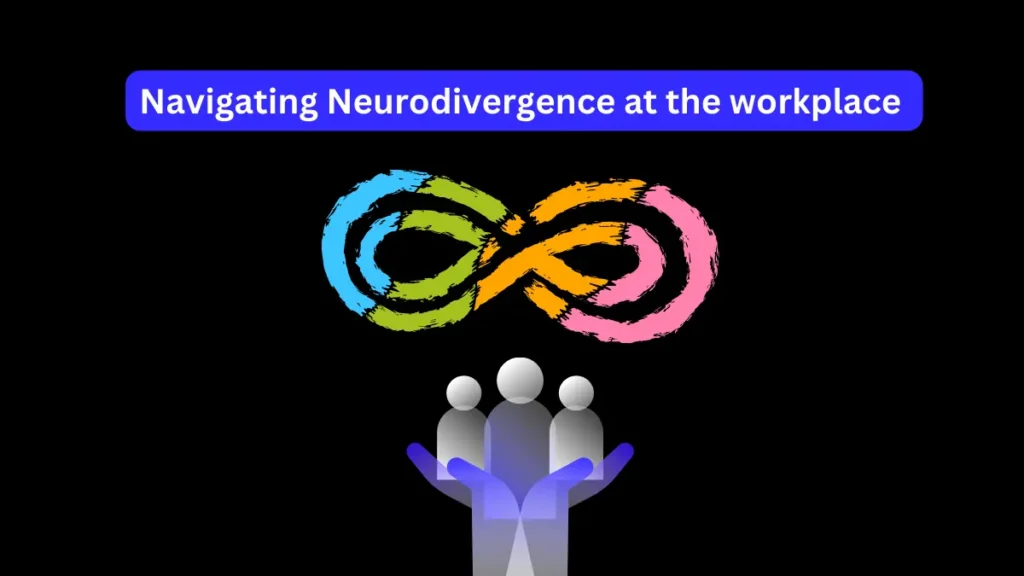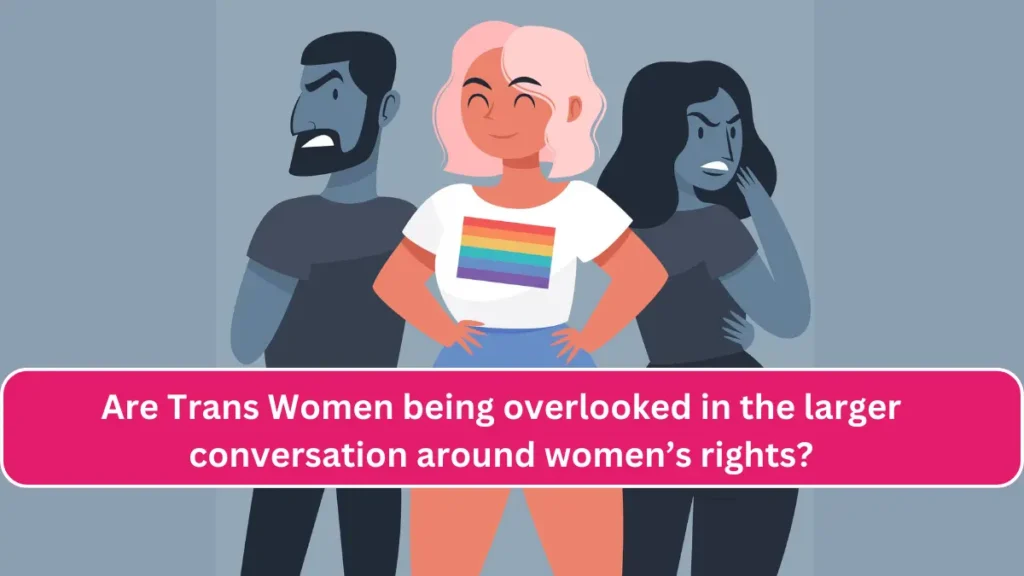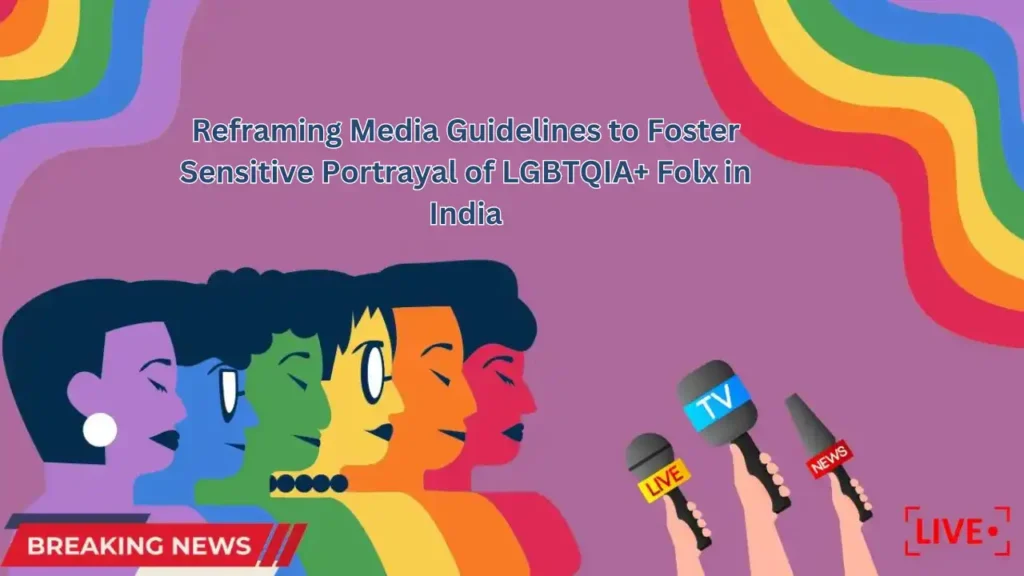BEING INCLUSIVE & PROVIDING SUPPORT
For many of us, any knowledge or understanding about a person who may express and identify differently than a cis-gender and heterosexual person may be rather limited. Many assume that being lesbian, gay, bi-sexual, transgender or queer (“LGBTQIA+”) is a mental or physical disorder and can be ‘fixed’ by medical and religious procedures and many think different representations and expressions as far as gender or sexuality is concerned don’t exist and are not ‘natural’. This may be because of several reasons but primarily because of lack of openness, non-inclusion and non-acceptance.
Lack of any real time spent with anyone from the community, having preconceived notions, judgmental attitude and biases, ostracization of the members from the society, discrimination and so much more have led to non-inclusion and non-acceptance. To an extent that it has led individuals to be ‘closeted’ and not be able to freely express themselves. To an extent that when is speaking to another, one may not even be aware of their true feelings & expressions.
When one’s mere existence and expression attracts violence, harassment, rejection, social isolation and much worse, drives a person to fringes of society without any social, economic, financial or other inclusion, it becomes every individual’s personal and collective responsibility as members of the society, as neighbours, colleagues, to reflect and analyse why this is happening.
With the gradual change in the societal, legal and organizations attitude towards members of the LGBTI community, and the slow shift towards celebration and mainstreaming of diversity one may become confronted with their own lack of understanding and knowledge. Situations like these, present to every individual, and society as a whole, an opportunity to internally reflect on one’s preconceived notions and biases which may until then lay dormant at the corner of one’s mind. Moments like these should be utilized to challenge and actively engage with one’s mind’s often unchartered territory where the prejudices and biases lay consciously or subconsciously guiding one’s actions and understanding of the world around us. This foray into one’s own thoughts, may be done while interacting with any individual, but is of crucial importance when attempting to understand the worldview and predicament of those who ‘differ’ from the ‘usual’ or the ‘normal’.
Theoretically and academically one may have an understanding that one must respect all individuals and treat them as human, no matter their differences. However, how that translates into ground realities, is something that needs to be understood and demonstrated.
This piece, is therefore, an attempt to capture some of the pointers to be mindful of if you want to ensure that you treat humans humanly! And point out and weed out problematic behaviour in ourselves and others around us. It is to learn and share some of the learnings we have had so far.
The first question we asked ourselves was - How do we really start? The best way we thought was by Educating Ourselves
Learn about Common Terminologies
It is important to learn more about experiences of individuals that are different from our own. However, it is important to be mindful that just because an individual is different does not mean that they are there to answer all of straight community’s, often intrusive, questions.
A good rule of thumb is not to ask another person any questions which you would find too personal or intrusive to ask a cis-gender heterosexual person/ or a person who does not belong to the community. Here are some terminologies we learnt about:
Learn about Experiences from Authentic Sources
It would also be a good idea to ask for references, or website links from where authentic information can be gathered. Reading about or watching stories of real-life experiences and interviews may also be a good idea. There are several resources of this nature available. Recently, several advertisements have also been released.
Here are some of the Influencers from the Community that you can follow
The Queer Muslim Project
Founded by Ragiul Alom, this project is countering queer-phobia and Muslim hate one story at a time.
The Chinky Homo Project
Founded by Pavel Sagolsem and Kumam Davidson, it is a social media based digital and queer anthology of Northeast India.
Dalit Queer Project
Founded by Aroh Akunth, this is a collaborative space for all Dalit and Queer persons, to break hetero norms and caste shackles. Aroh Akunth is also currently building Dalit Art Archive, which records histories on the intersections of Caste and Art.
Dr. Trinetra Gummaraju Haldar
Trinetra is a doctor, a trans woman, and a well-known queer influencer on social media. She recently made history by becoming the first trans woman surgeon in Karnataka. She raises awareness and educates people around growing up as a trans person, the process of transition and other issues surrounding gender and sexuality.
Sushant Divgikr/Rani KoHEnur
Sushant is a psychologist, singer, performer, columnist, VJ, model, actor, India’s mainstream drag icon, and LGBTQIA+ activist, who has over a million followers on Instagram. He won Mr. Gay India, 2014.
Durga Gawde
Durga is an artist, activist, educator, model and India’s first drag king. They identifies as a non-binary gender-fluid person and uses social media to raise awareness about gender fluidity. Durga also experiments with make-up and fashion, has popularized gender-neutral fashion in India.
Grace Banu
Grace is a Dalit transgender right activist, the first trans engineer, writer, social activist, and trans freedom fighter. Also, the Founder/Director of Trans Rights Now Collective..
Priyanka Paul
Priyanka is a poet, writer, storyteller and content creator and is well-known for her activism on social media. She has also achieved global recognition for her amazing artworks that reflect progressive, bold and edgy perspectives towards women empowerment.
Rishi Raj
Rishi is a tarot card reader, witch, Shaman in making, and an intersectional LGBTQIAP+ and anti-caste activist, poet and educator who educates his followers about caste and queer issues through poems and videos. He’s also a fashion, make-up and body positivity influencer.
Alex Mathew
Alex is an Indian drag queen, performer, emcee, influencer and actor, who has been mainstreaming Drag as an art form since 2014.
Alex Mathew
Alex is an Indian drag queen, performer, emcee, influencer and actor, who has been mainstreaming Drag as an art form since 2014.
Vivek Shraya
Vivek is a trans artist, model, actor, musician and author who also works as an assistant professor for creative writing at the University of Calgary, Canada. She authored the award-winning book titled I’m Afraid Of Men that explores how she was forced into masculinity due to her sex assigned at birth which traumatised her as a girl.
Maitrayanee Mahanta
Maitrayanee is an upcoming social media influencer from Assam. She is a content creator, model and artist who also has her own YouTube channel where she posts regular updates about her life. She and her partner have collaborated with other popular influencers as well.
Vqueeram Aditya Sahai
Vqueeram is a teacher at Ambedkar University and talks about gender inequality, mental health issues and violence on LGBTQIA+ among other topics.
LGBTQ India Resource
Conceptualised by Kumar Bhagirathkumar Jethubhai, this is an e-resource platform for LGBTQIA+ communities and allies. It provides news, movie and book recommendations, LGBTQ-owned business, helplines, organizations working on diversity and inclusion, etc.
The LGBT Events India
This social media account provides updates on social media regarding all LGBTQ+ events happening across India, be it film screenings, workshops, prides, or community events.
Ankit Dasgupta
Ankit is a gay activist, dancer and a digital marketing strategist at a popular television network. He actively stands by the LGBT+ community. He also worked closely with known journalist Faye D Souza to promote amendments in Article 377 towards the acceptance of homosexuality.
Anwesh Sahoo
Mr. Gay World India 2016, Anwesh is a motivational speaker, actor, dancer, model and blogger. He uses his social media account to create awareness about the queer community and he loves posting artwork, poems and pictures from his photoshoots.
Transvision
This is a YouTube channel developed by transgender persons to create awareness about trans persons, their issues and to break the negative notions about the community.
Transvision
This page celebrates love and marriage outside the shackles of faith, caste, ethnicity, and gender, by sharing people’s stories. If nothing else, this page will certainly be a ray of hope, in otherwise morose times.
Learn from Movies, Books & More
Movies, books and other media add to a great deal of learning for each one of us. However, often they may also be colored with popular stereotypes in popular movies or TV shows which often propagate problematic tropes further isolating and alienating an oft scorned community and relying on those may defeat the purpose. For example, we may have come across movies that depict the Hijra community who are omnipresent at familial celebrations or shown as begging at traffic signals. Hence, if the idea is to true learn, it is extremely important to choose the right kind. Here is a list of a few that may be helpful:
Movies that you can view

MILK (2008), Link to Trailer
Milk is a biopic that chronicles around the life of Harvey Milk, a gay rights activist and the first openly gay person to be elected to public office in California. The film appeared on many critics’ top 10 lists of best films of 2008. Although it has received mixed reviews in the LGBTQIA+ community, a common thread that flows across the reviews is that the story of Harvey Milk is definitely worth watching, even if cinematically things could have been done differently in the movie.
Language – English (America)
Cast – Sean Penn, Emile Hirsch, Josh Brolin, Diego Luna, James Franco, Alison Pill, Victor Garber, Denis O’Hare. While the cast is not from the queer community, it is written by Dustin Lance Black who is from the community and is also an active LGBT rights activist.
Awards – The biopic received eight Academy Award nominations, winning two for Best Actor in a Leading Role for Sean Penn and Best Original Screenplay for Dustin Lance Black. Apart from this, it received Independent Spirit Awards, Best Original Screenplay at Writers Guild of America, Critic’s Choice Award nominations, Golden Globe nomination, won Screen Actors Guild, Producers Guild of America nomination, Directors Guild of America nomination and BAFTA nominations.
Reviews – Tyler Coates, while reviewing from a gay perspective, said “Milk is a very good movie, a surprisingly clean biopic that offers a tour-de-force performance from Sean Penn (who won an Oscar for his role), and perfectly captures the era of Milk’s rise from aging hippie and community organizer to media-savvy politician.”

Moonlight (2017), Link to Trailer
The Guardian states “At a time when gay culture is overwhelmingly white, Barry Jenkins explores the experience of queer black men and the challenges we face”.
Language – English (America)
Cast – The lead protagonist, Trevante Rhodes, is queer. The rest of the cast members are André Holland, Naomie Harris, Janelle Monáe, Mahershala Ali.
Awards –The film received eight Academy Award nominations, winning three for Best Picture, Best Supporting Actor and Best Adapted Screenplay. It is the first LGBTQ film to have ever received the Best Picture award at the Oscars. It received six nominations in the Golden Globe Awards, winning the award for Best Motion Picture – Drama. It also received nominations in British Academy Film Awards.
Reviews – This is amongst the most appreciated LGBTQIA+ movies. It has been called a game-changing revolutionary movie. It is a one-of-a-kind, groundbreaking queer coming-of-age tale, that depicts the life of a black gay man and his journey to adulthood.

Brokeback Mountain (2005), Link to Trailer
It is known as the go-to LGBTQIA+ movie. Craig Johnson, a queer director, recently said “I came out as gay during the time ‘Brokeback Mountain’ came out, so it coincided with this time of me feeling like I couldn’t live a lie anymore and wanting to finally embrace fully who I am. Then I see this movie and it was a really emotional experience for me.
Language – English (America)
Cast: Jake Gyllenhaal, Heath Ledger, Anne Hathaway, Michelle Williams
Director: Ang Lee
Awards – The film received four Academy Award nominations, winning three for Best Director, Best Adapted Screenplay and Original Score. The film garnered received seven nominations at the Golden Globe Awards, winning four. The film also received nine nominations at the British Academy Film Awards, winning four.
Reviews – Not only because in that movie you see what societal repression and internal repression can do to you. But also those feelings of like ‘if you’re gay, you’re gay.’ You can try to change it but you can’t, and it’s going to mess with you if you don’t figure it out. This movie could’ve felt like a cheap porno. But it was exquisitely done, so undeniably moving and had such an impact. It just felt like: ‘I knew this moment was coming.’ Everything else prior to that felt a little indie or under the radar, but ‘Brokeback’ was fully above the radar.”

Carol (2015), Link to Trailer
Language – English (America)
Not queer.
Cast: Directed by Todd Haynes. The film stars Cate Blanchett, Rooney Mara, Sarah Paulson, Jake Lacy, and Kyle Chandler
Awards – In 2016, British Film Institute ranked Carol as the best LGBT film of all time. Carol has received over 275 industry and critic nominations, and over 90 awards and honours. Some of these are: The film received six Academy /award nominations, five Golden Globe Award nominations, nine BAFTA Award nominations, six Independent Spirit Award nominations.
The film was selected to compete for the Palme d’Or at the 2015 Cannes Film Festival, where it won the Queer Palm. It won the Audience Award at the Whistler Film Festival, and the Chicago International Film Festival’s Gold Q Hugo Award for exhibiting “new artistic perspectives on sexuality and identity”. Carol was the “overall favorite” on IndieWire’s critics’ poll of the best films and performances from the New York Film Festival, topping the Best Narrative Feature, Best Director, Best Lead Performance (Blanchett and Mara), Best Screenplay, and Best Cinematography categories.
Reviews – Gabrielle Korn, a queer writer, said “and for a movie with such complex details, it’s this perfect simplicity that holds it all together. In an Oscar race that is surprisingly filled with queer narratives, this is the one we’ve been waiting for.” In contrast, Kate Taylor, a British writer, writes that Carol is a beautifully filmed Lesbian drama, but told solely for the straight world.

Pariah (2011), Link to Trailer
Language – English (America)
Not queer.
Cast: Dee Rees, the Director and Screenwriter, is a lesbian, and has confessed that Pariah is semi-autobiographical. Adepero Oduye, Pernell Walker, Kim Wayans, Aasha Davis Charles Parnell
Awards –Got nominated and won several awards. Won two awards at the African-American Film Critics Association, Best Independent Film and Best Breakthrough Performance (Adepero Oduye). It got 9 nominations for the Black Reel Awards, won an award for the Best Breakthrough Performance for Adepero Oduye. The film also received five Black Film Critics Circle nomination, won four, Best Director, Best Original Screenplay, Best Independent Film and Best Breakthrough Performance. It also received nominations for Independent Spirit Awards and NAACP Image Awards, winning th award for Outstanding Independent Motion Picture at NAACP Image Awards.
Reviews – The film is about identity, not only how the world perceives you, but largely about how you perceive yourself. Critics have called it challenging, beautiful and heartbreaking. In Rotten Tomatoes Editorial, a queer writer said, “The movie changed my life and my perspective on what it means to be happy with everything I am. When the film was released, it didn’t receive the notoriety it deserves. Now, many movie fans are discovering what a gem Pariah is…..I’m just here to remind movie fans that Pariah should always come up in conversation when discussing queer cinema game changers. It’s a movie that speaks to a demographic that rarely interests Hollywood studios – Black queer women and non-binary people.”

The Boys in the Band (2020), Link to Trailer
Language – English (America)
It has an all-gay cast. One of the very few movies with such representation from the community. The Director, Joe Mantello, is also queer himself. It’s an adaptation of a play that goes by the same name, by Mart Crowley, who was also queer.
Cast: Jim Parsons, Zachary Quinto, Matt Bomer, Andrew Rannells, Charlie Carver, Robin De Jesus, Brian Hutchison
Awards –So far, it has been awarded the Film Award at the Virgin Atlantic Attitude Awards. It was also awarded the GLAAD Media Award for Outstanding Film (Limited Release).
Reviews – Peter Bradhsaw, a film critic for The Guardian, wrote, “The Boys in the Band appears to come from a more innocent, or at least more naive time, as yet politically unradicalised by Aids and the backlash of homophobia, when the issue was acceptance, a goal that seemed to be matter of gradually changing taste. But it’s still refreshing to watch something which is, after all, a film of ideas, a spectacle in which people speak to each other in extended paragraphs. It is all unexpectedly potent, particularly in the absurdity and petulance and pain that Parsons crams into his performance. It’s a strange, compelling dose of unhappiness.”
Books that you can read

On Being Different: What it Means to be a Homosexual by Merle Miller
Considered one of the earliest gay memoirs, this book was originally published as an essay in response to a homophobic essay in Harper’s Magazine. It’s exactly what the title describes: a seminal book that reaffirms the importance of coming out. This oldie but a goodie should be required reading for anyone who is or loves someone who identifies as LGBTQ.

Tomorrow Will Be Different
Love, Loss and the Fight for Trans Equality by Sarah McBride: McBride became the first transgender person to ever speak in front of a national political convention at the age of 26, but that doesn’t mean her transition has been easy. This book weaves her personal journey with the steps the country has taken toward trans acceptance in a memoir that’s both deeply individual and a primer on national civil rights.

Giovanni’s Room by James Baldwin
Lyrical, scorching, and deeply moving, the words of this poet will sear themselves onto your heart.
Learn about Respectful Mannerisms
Sometimes, one may have a more academic understanding from news articles or social media posts. But when confronted with the prospect of normal social interactions, we may be dumfounded as to what are the socially acceptable and respectful mannerisms to be mindful of.
Few of us have been schooled or taught the correct mannerisms and social etiquettes to be mindful of while interacting with individuals who present differently than the cisgender heteronormative, this lack of awareness and understanding may translate into unintended social avoidance of individuals. For people who for the most part, have lacked societal acceptance just for being who they are, this social isolation may act as a further confirmation of their non-acceptance.
Listen actively
Even after educating oneself, one should not generalise all information to be applicable to all LGBTQIA+ individuals. It is important to be mindful that each person is unique. Therefore, it is important to actively listen and understand from the individual themselves their lived experience and pick up pointers and cues from them. They will often indicate how they refer to themselves, both ‘name’ they want to be addressed by and the pronouns they use for themselves.
Be mindful of language used & what is said
It is important to be mindful of the pronoun they use, and not to misgender them, for the one making a mistake it just might be a slip of tongue, but for the one who they are addressing it may just question their very identity and seem extremely disrespectful. These pronouns can either fall into the gender binary of he or she or the individual may choose a non-binary expression and want to be referred to as they/ them. Along with their pronouns they may prefer to call themselves a name which is not their official or biological name. It is important to respect their choices and refrain from questioning.
Never OUT an LGBTQIA+ person
One should never out an LGBTQIA+ person, which means one should never reveal to another individual another’s gender identity or sexual preferences without their express consent. This is because people often lead complex lives irrespective of their gender identity or sexual orientation. One may face difficulty navigating seemingly innocuous aspects of daily life due to their gender or sexual identity as well and may not want to share these aspects of their lie with everyone in all spaces. It is always individual specific – someone may be comfortable and open about these aspects of their life with everyone, and someone may not be – which is the same as a cis-gender heterosexual person. It is therefore a good thumb rule never to assume one is okay with everyone knowing and therefore never out a person to any other.
Actively be an ALLY
To be an ally one has to listen or learn from those who are in marginalized positions because of systematic oppression or power dynamics. It is to act from a position of relative privilege. To be an ally one should actively support and advocate for the inclusion of people who inherently identify with diverse gender expression and have diverse sexual preferences. There are many steps one can actively take to be an ally.
Educate family members & friends
It is also our responsibility to educate our family members and friends if we see them coming from a biased / prejudiced place. It is also every individuals personal responsibility to show our intolerance towards comments and jokes which are transphobic or homophobic and reiterate how these can be harmful towards a human being and curtail an inclusive environment. It is important to point out what is problematic with these oppressive jokes.
Support with Employment
Needless to mention, employment and financial independence not only allows a person to participate equally in the success of the country’s economy but also have control over personal choices, decision making, have a life style and more. Right to life and right to work are also, therefore fundamental rights as per the Constitution of India. This also allows a person to have a voice, to share opinions in matters that impact them and the society. Therefore, a major part of inclusion and mainstreaming is employment. Therefore, if you are someone who is an employer or can take employment decisions, it may be a good idea to start inclusion by providing skill development and employment opportunities. Below provided are details of some of the organizations that can help in employment / placements and you can also collaborate with them:
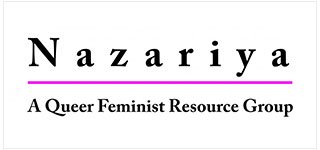
Nazariya
With a focus on queer women and trans persons, this Delhi-based Queer Feminist Resource Group was formed in October 2014 with a view make the LGBTQIA+ lives visible. They advocate for access to resources and equal opportunities, and work towards development of a non-discriminatory environment, through research & evaluations, awareness and capacity building, and advocacy.
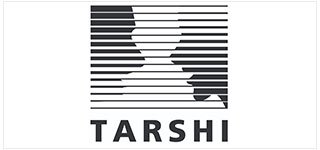
Tarshi
For over 25 years, Tarshi has been conducting trainings, developing publications, participating in public awareness and education initiatives, and providing technical support for advocacy initiatives, on sexual and reproductive health. They are also currently working towards creating rights-based Safe, Inclusive, Sexuality-Affirming (SISA) spaces.
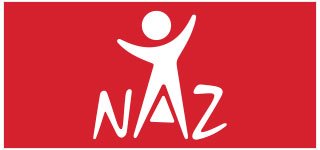
Naz Foundation
Started by Anjali Gopalan in 1994 to address issues of HIV/AIDS and sexuality, they conduct sessions to help individuals and community-based organizations understand sexuality and mainstream HIV in their program. With a focus on advocacy, Naz successfully challenged the archaic law of Section 377 under the Indian Penal Code which criminalised homosexuality.
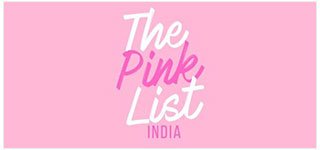
The PinkList India
Situated in the intersection of politics, queerness and technology, PinkList is India’s first archive of politicians supporting LGBTQIA+ rights, with an aim to push for accountability and transparency from elected representatives. They also actively collate information on how we can support the community, such as, pride fundraisers, queer-dedicated COVID-19 relief efforts.
Stay updated
If you are someone who wants to actively support inclusion. It is important to stay updated. You can refer to some of our resources as well
 Cart is empty
Cart is empty 

